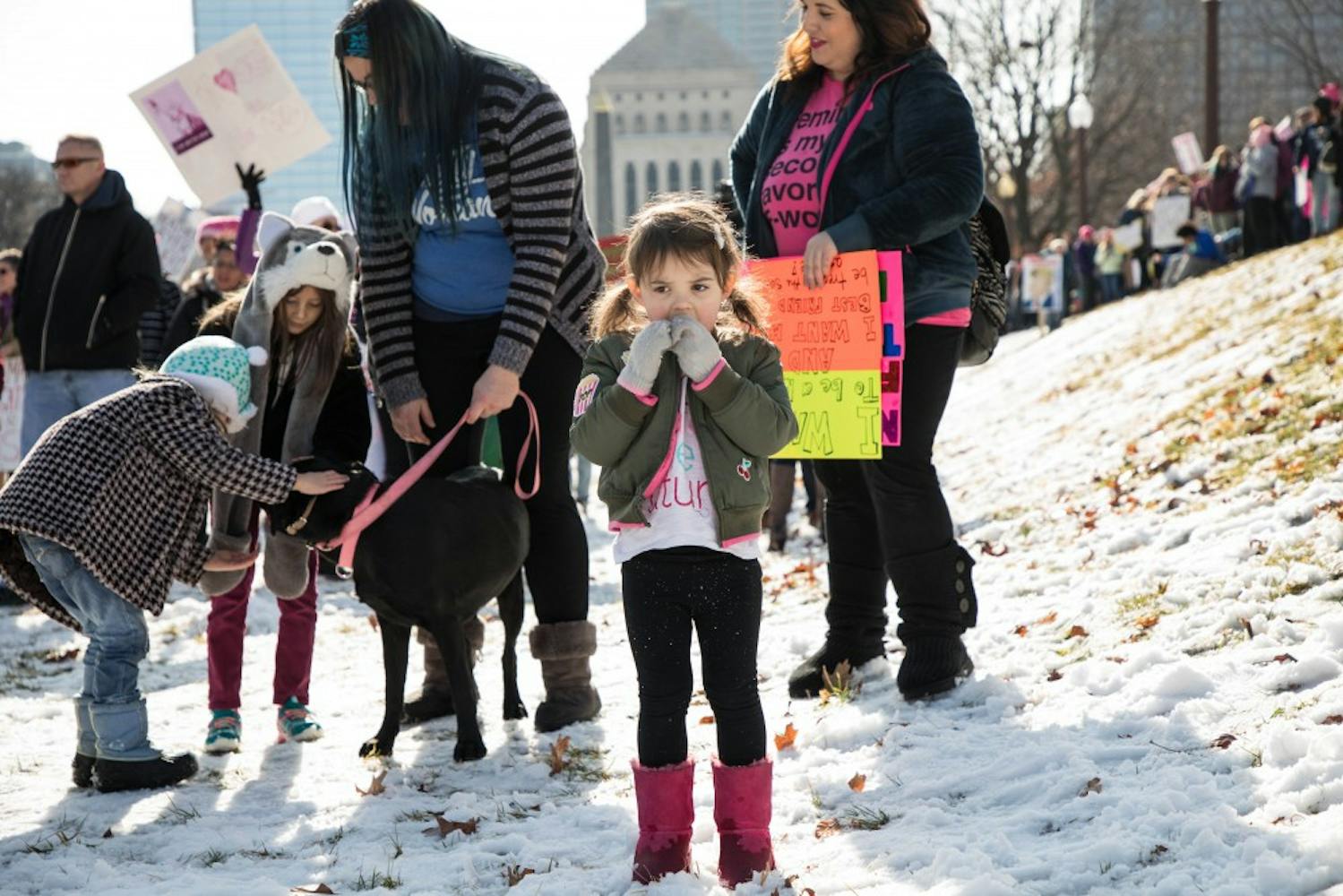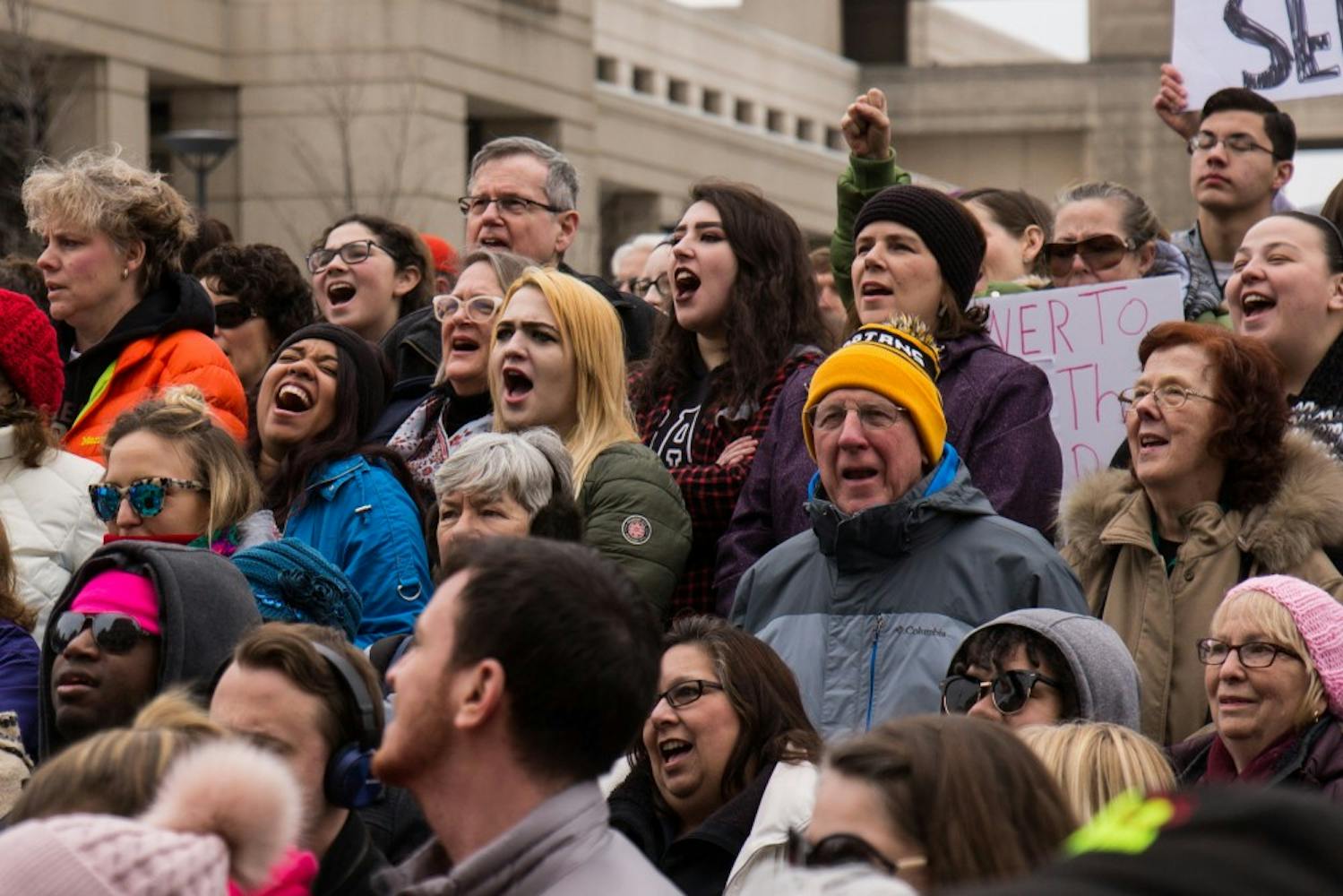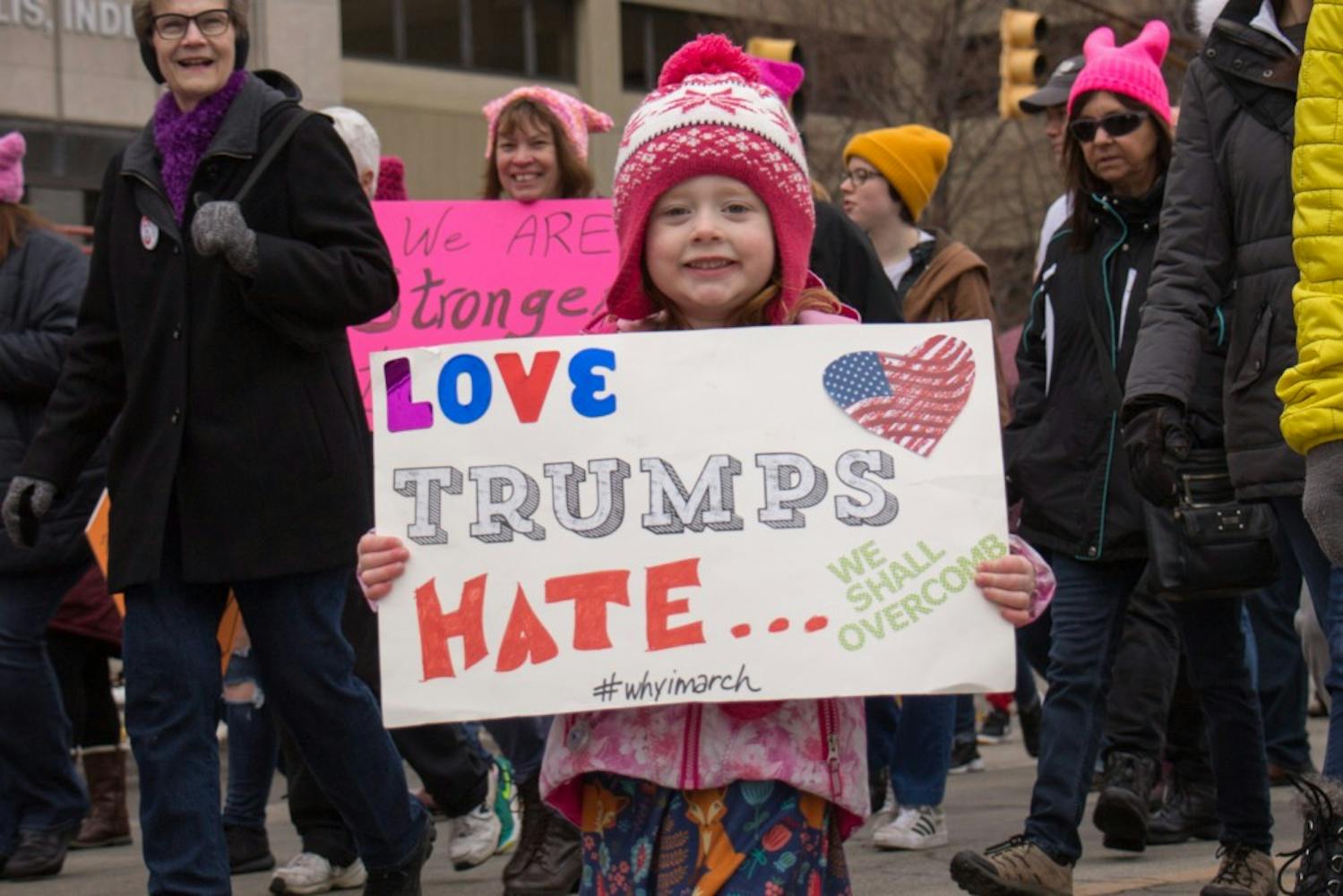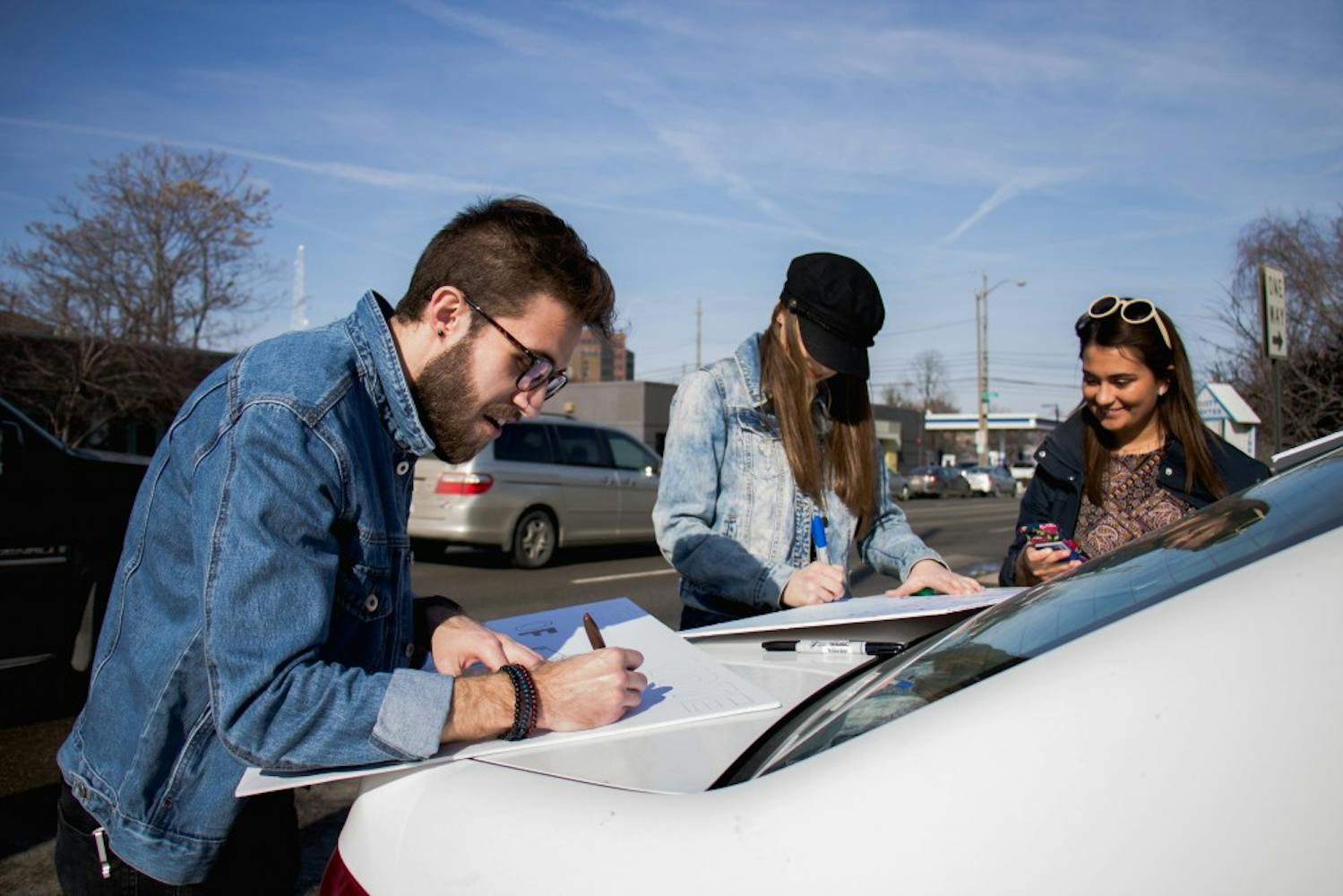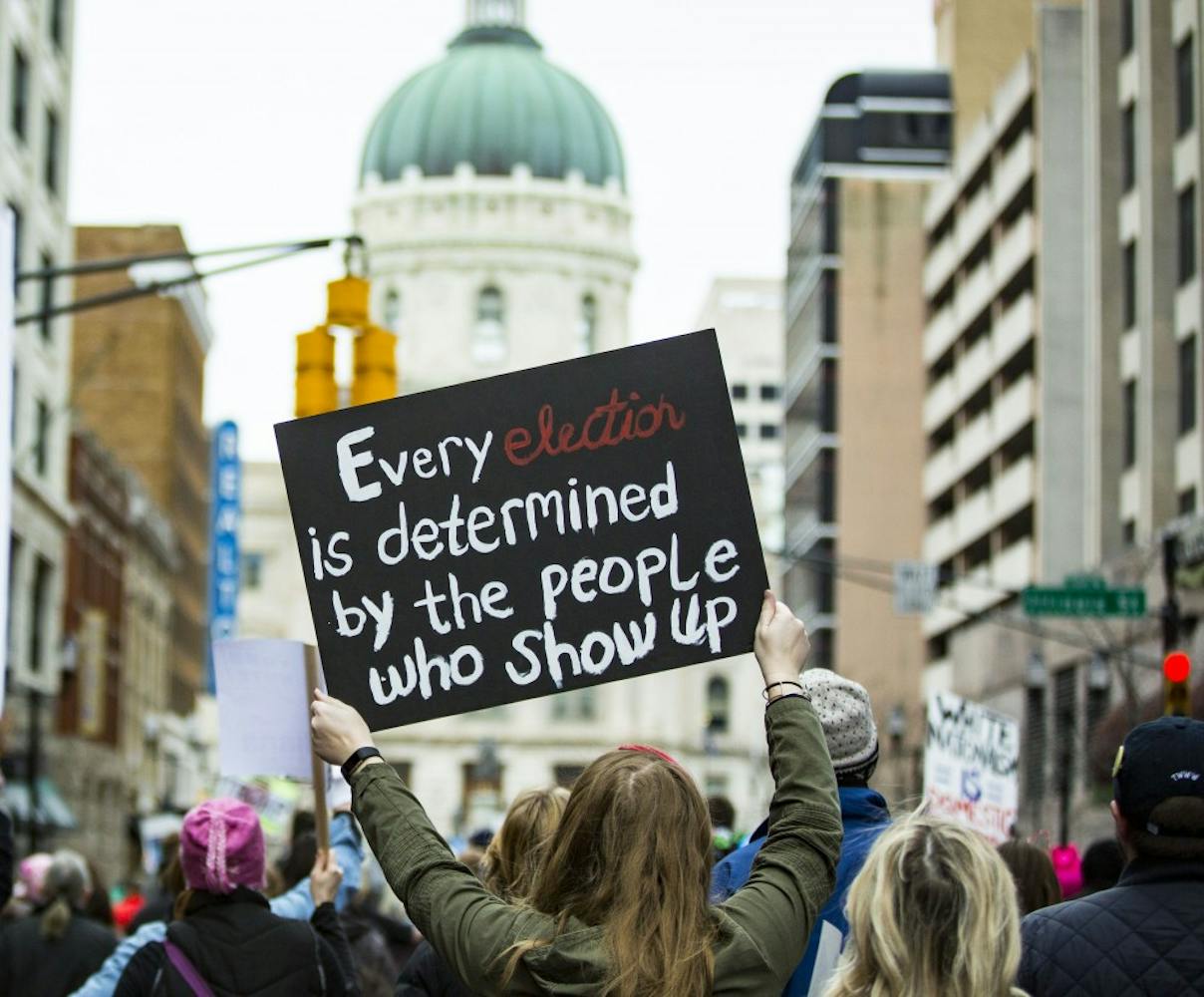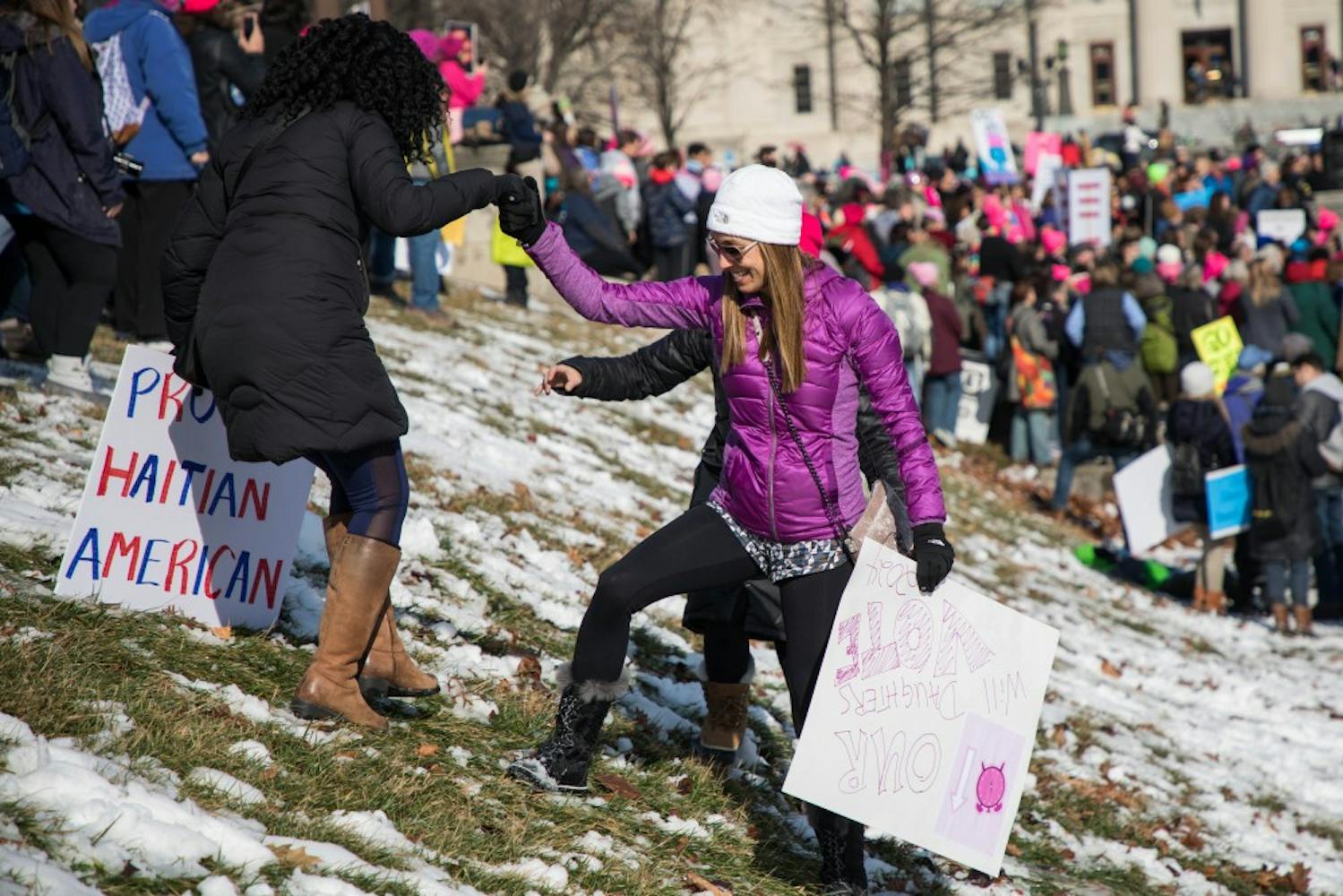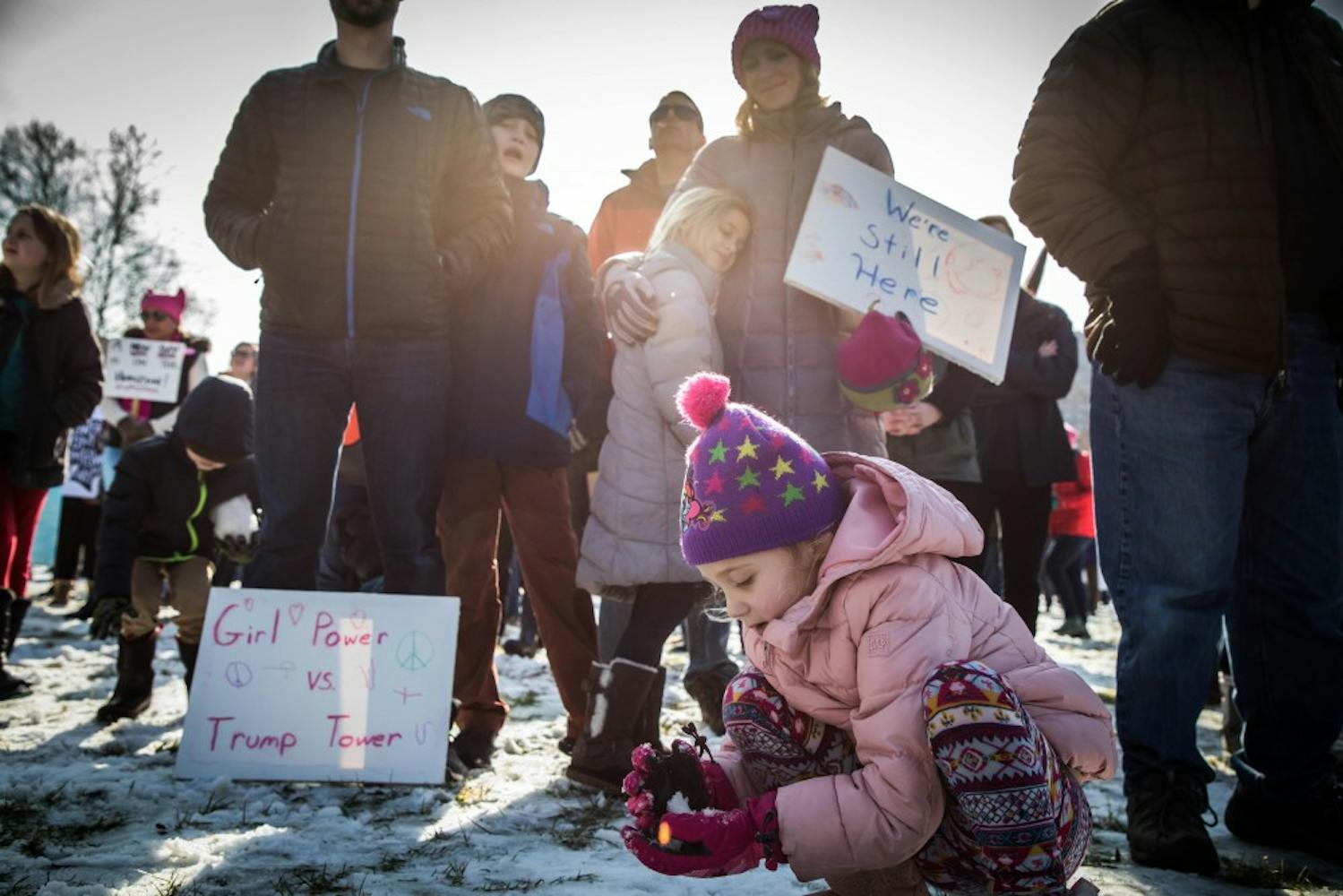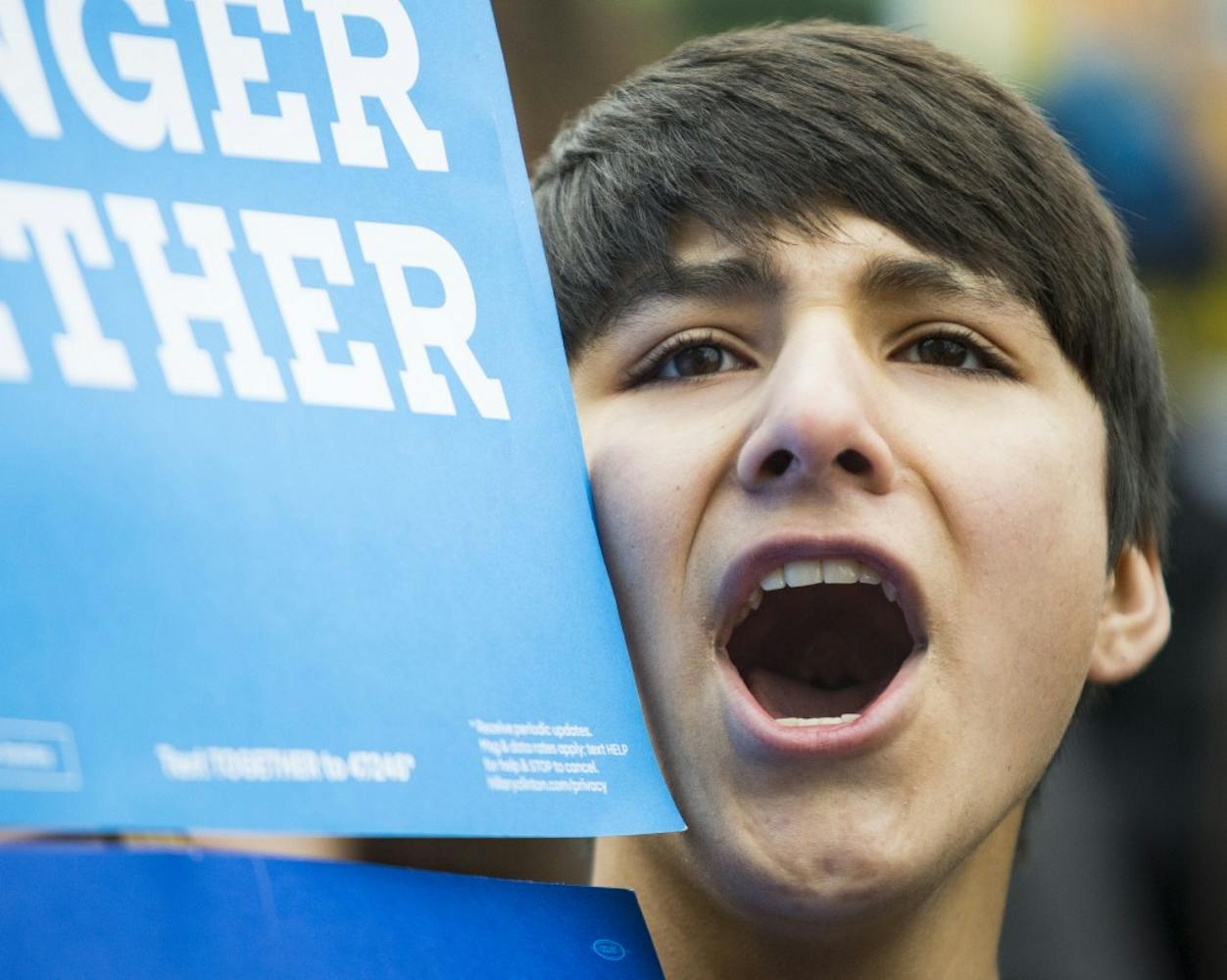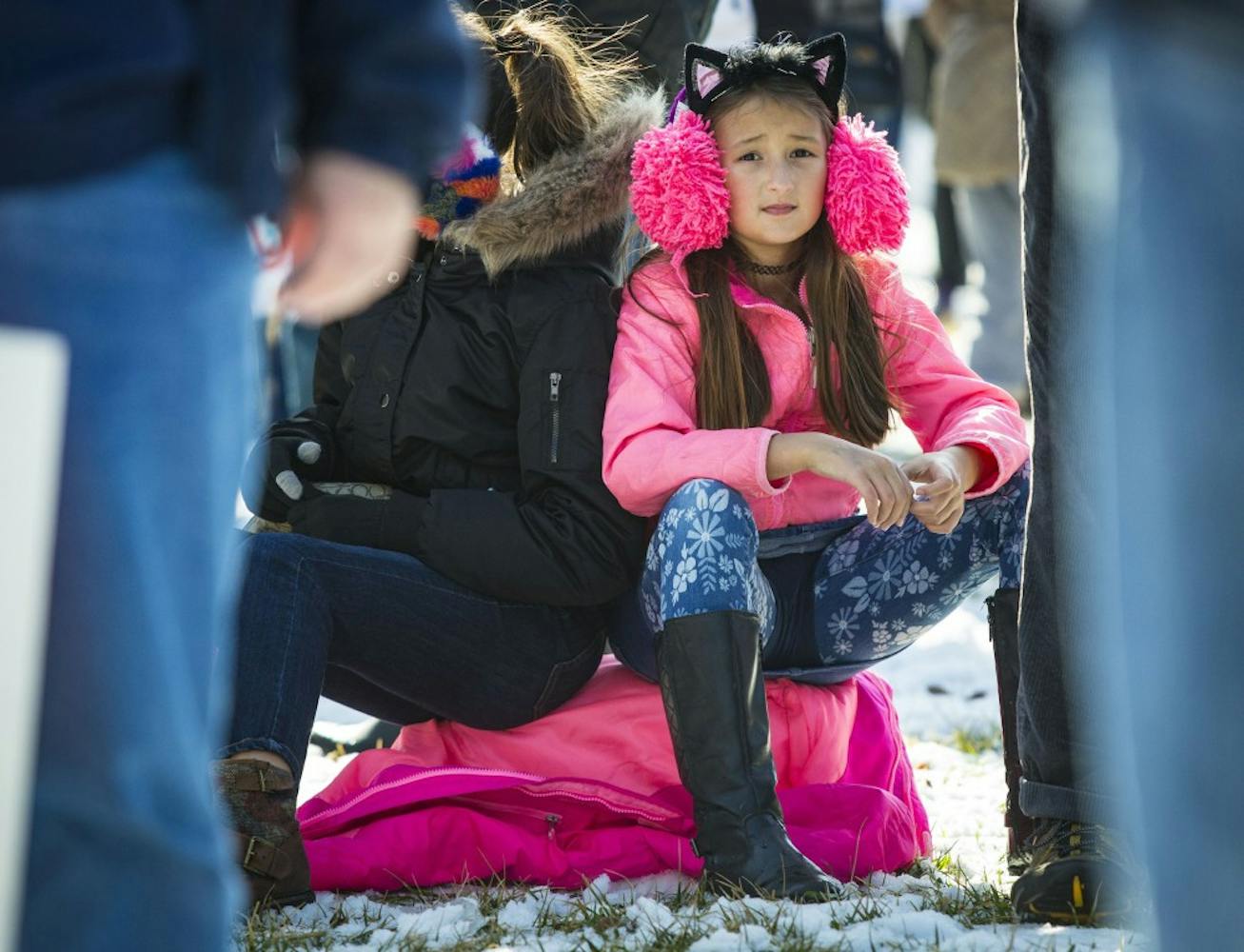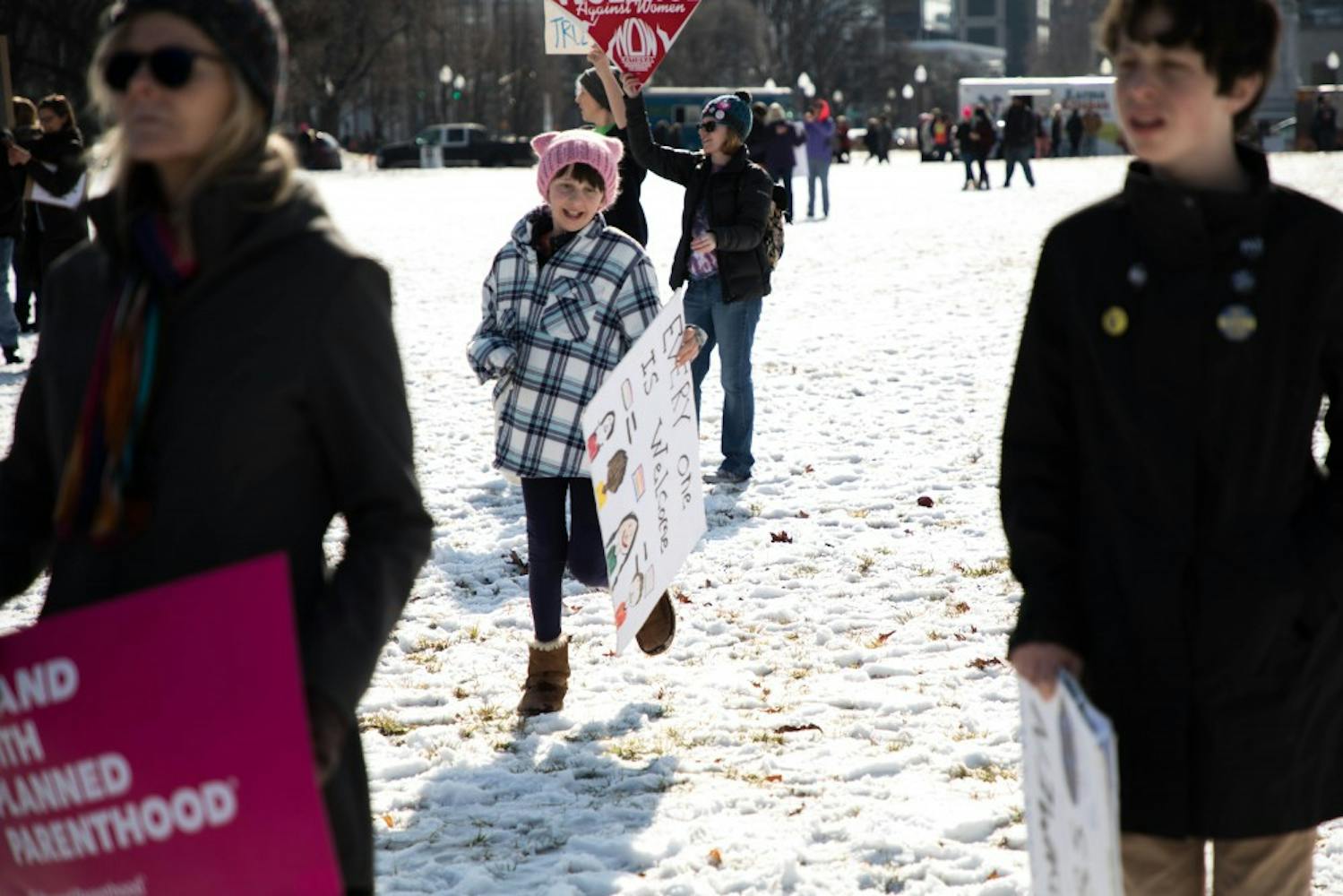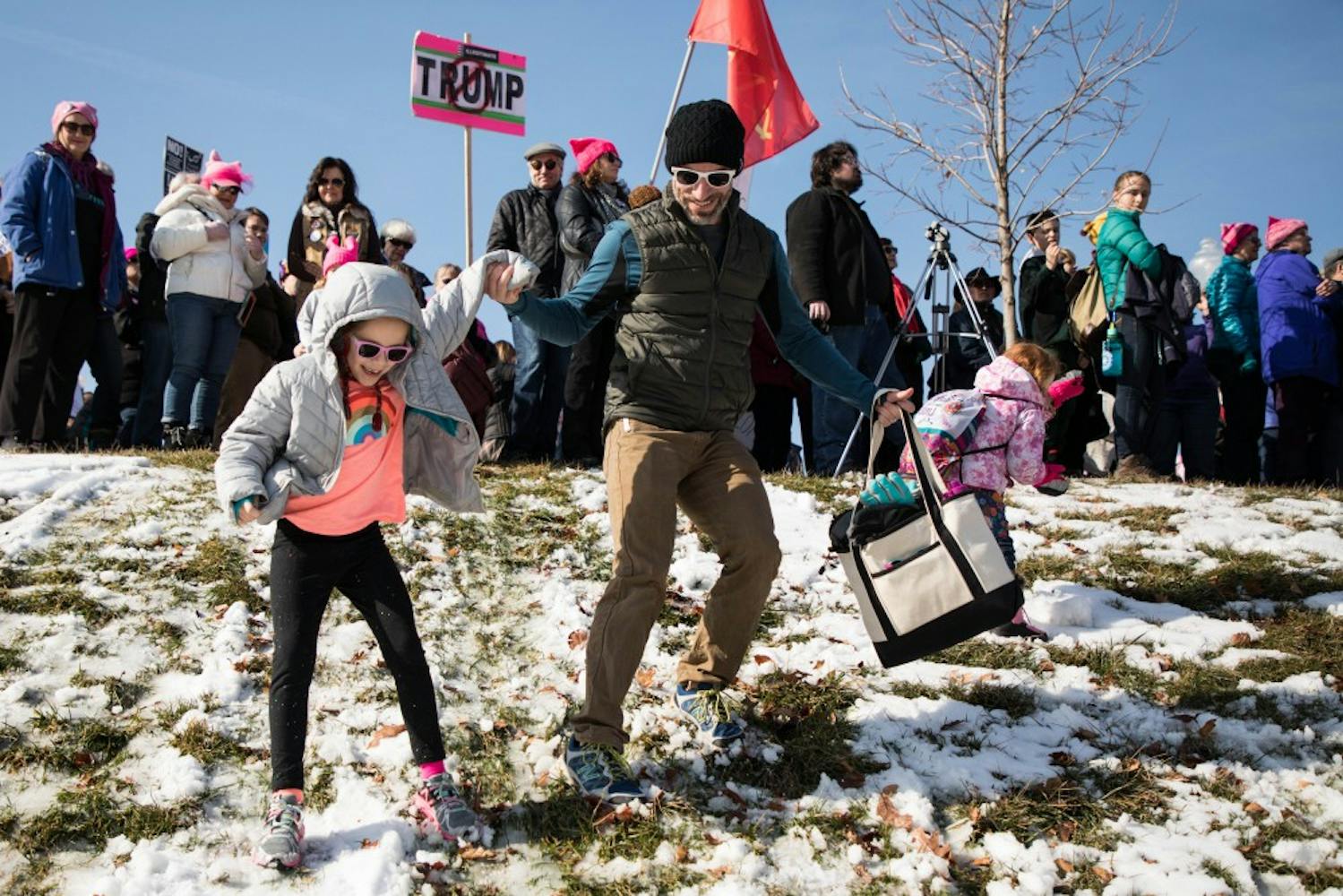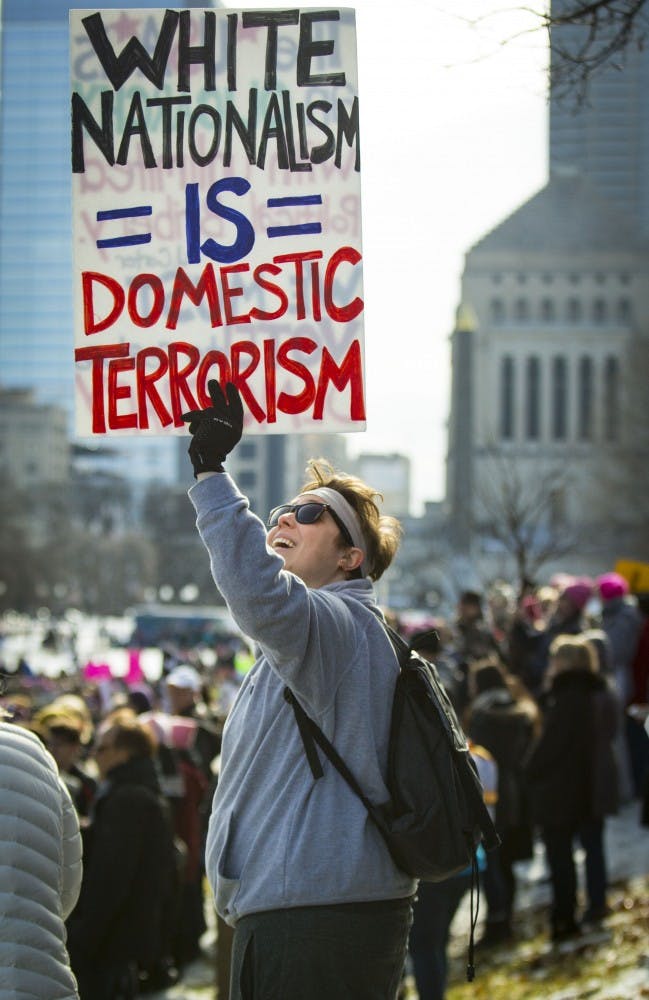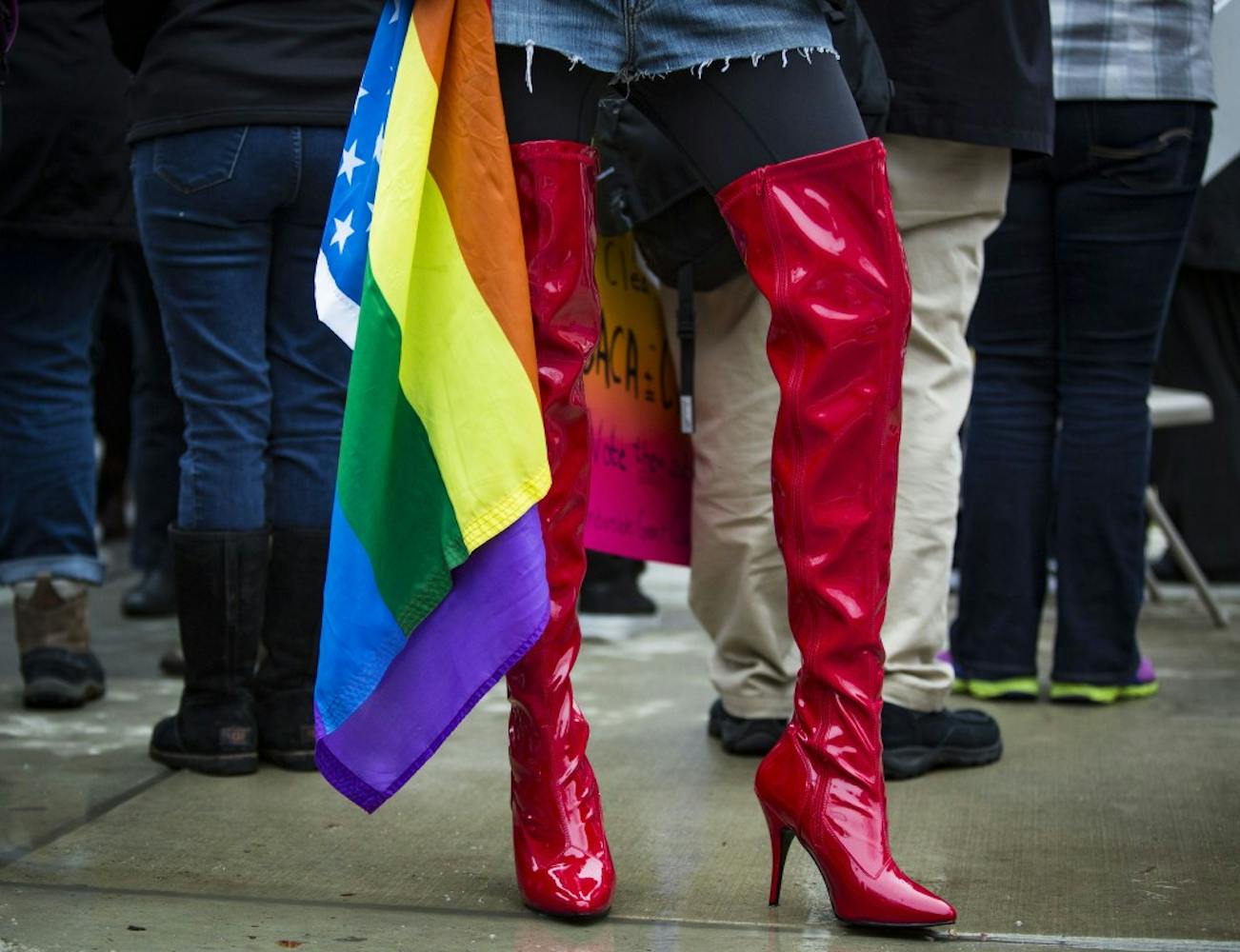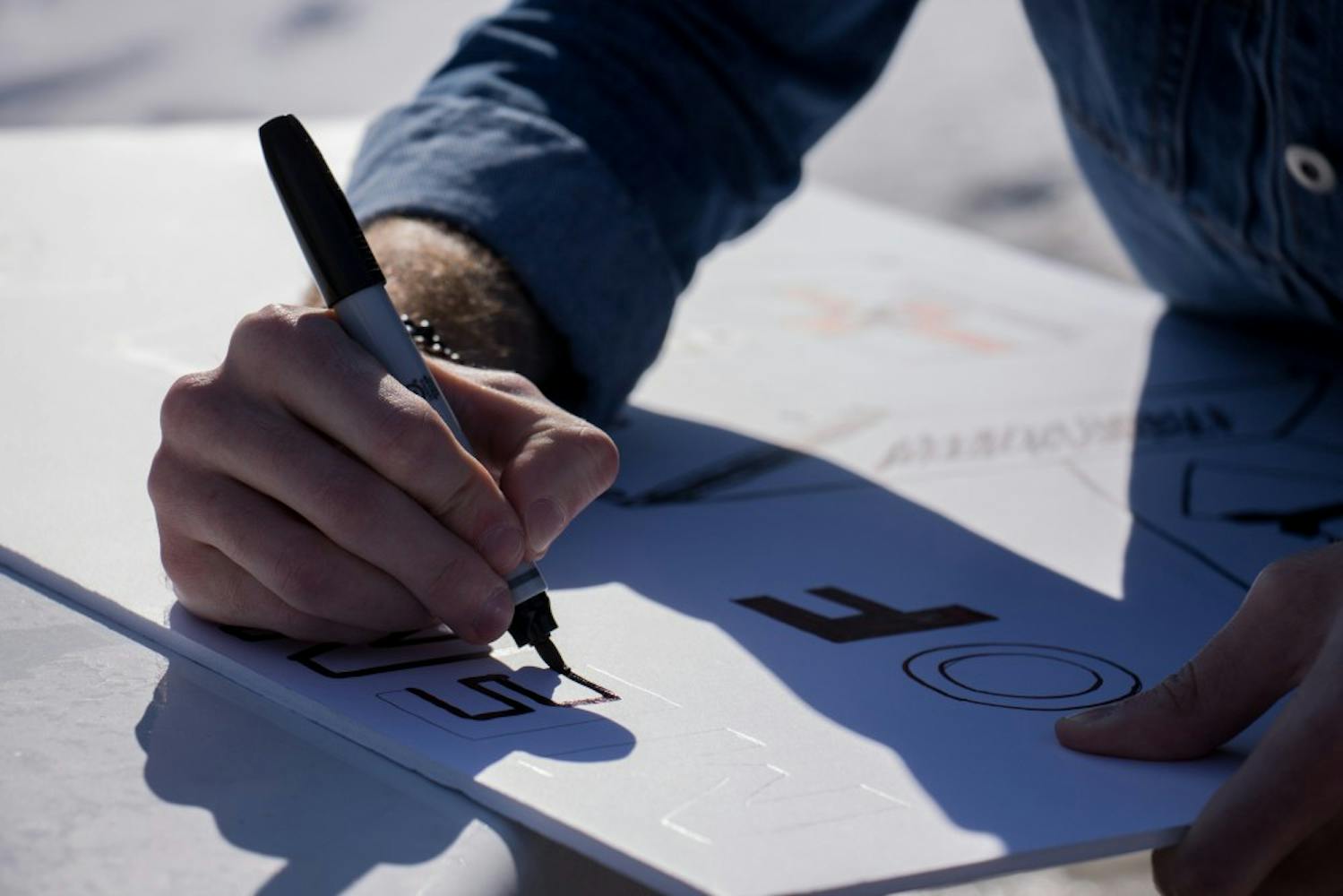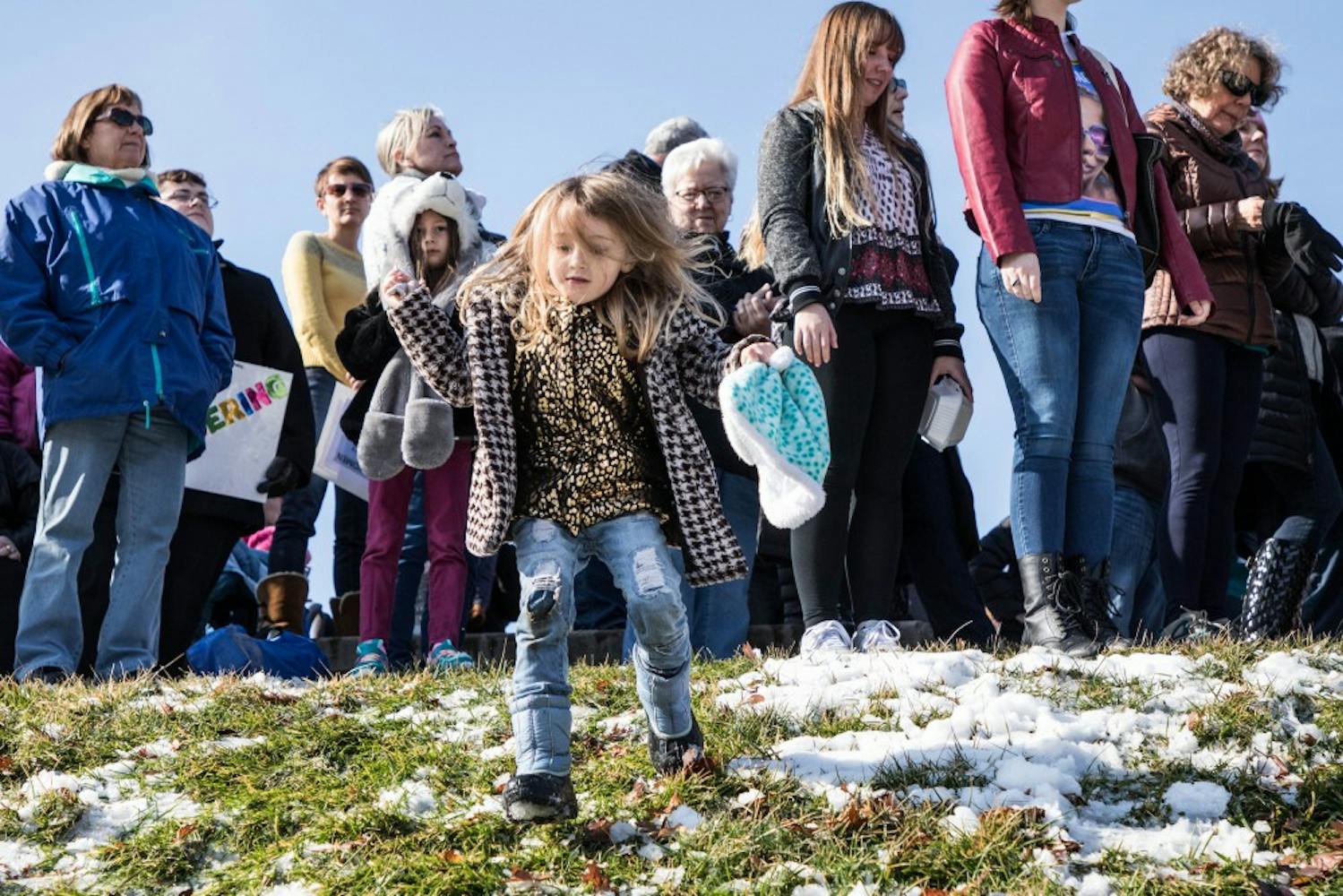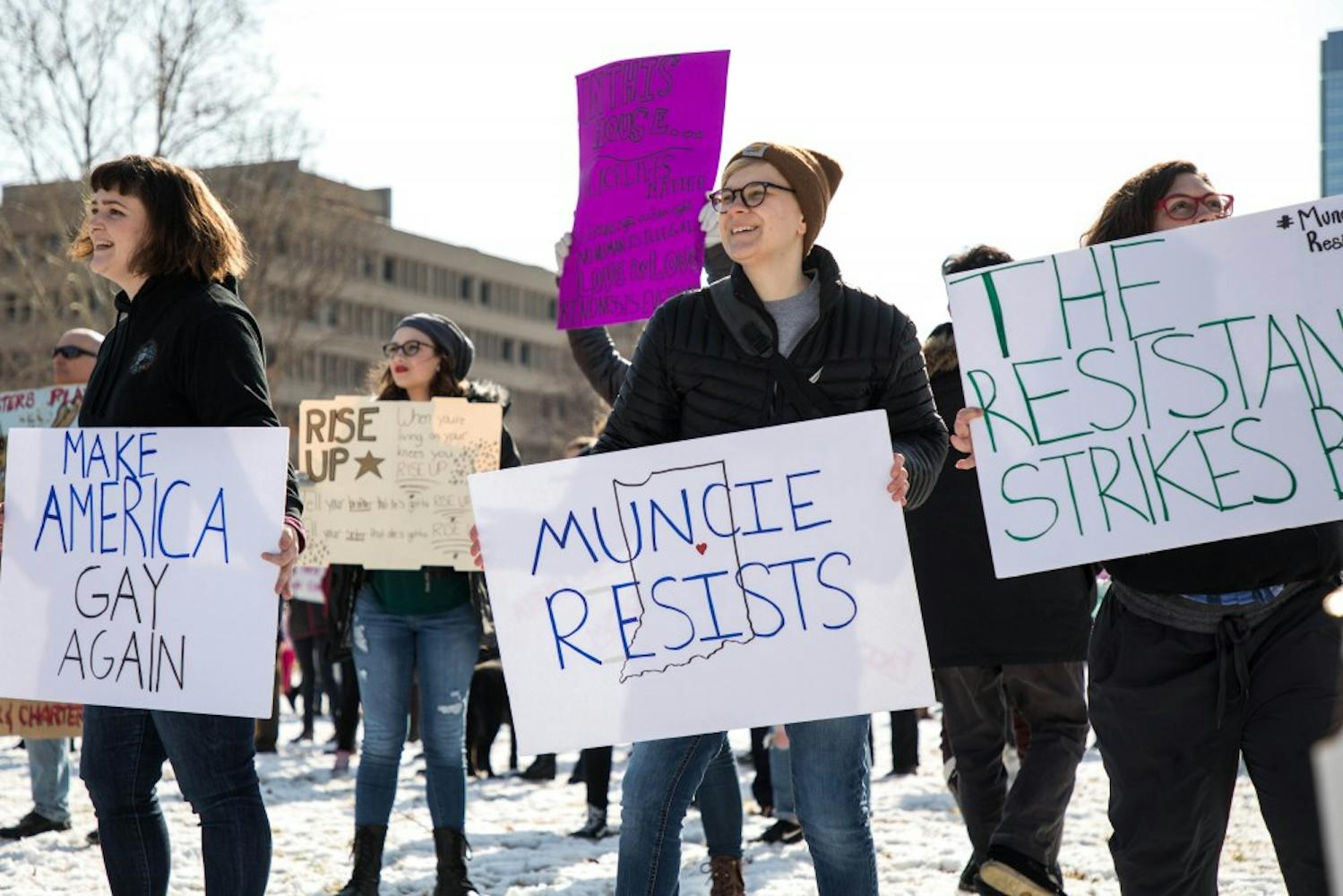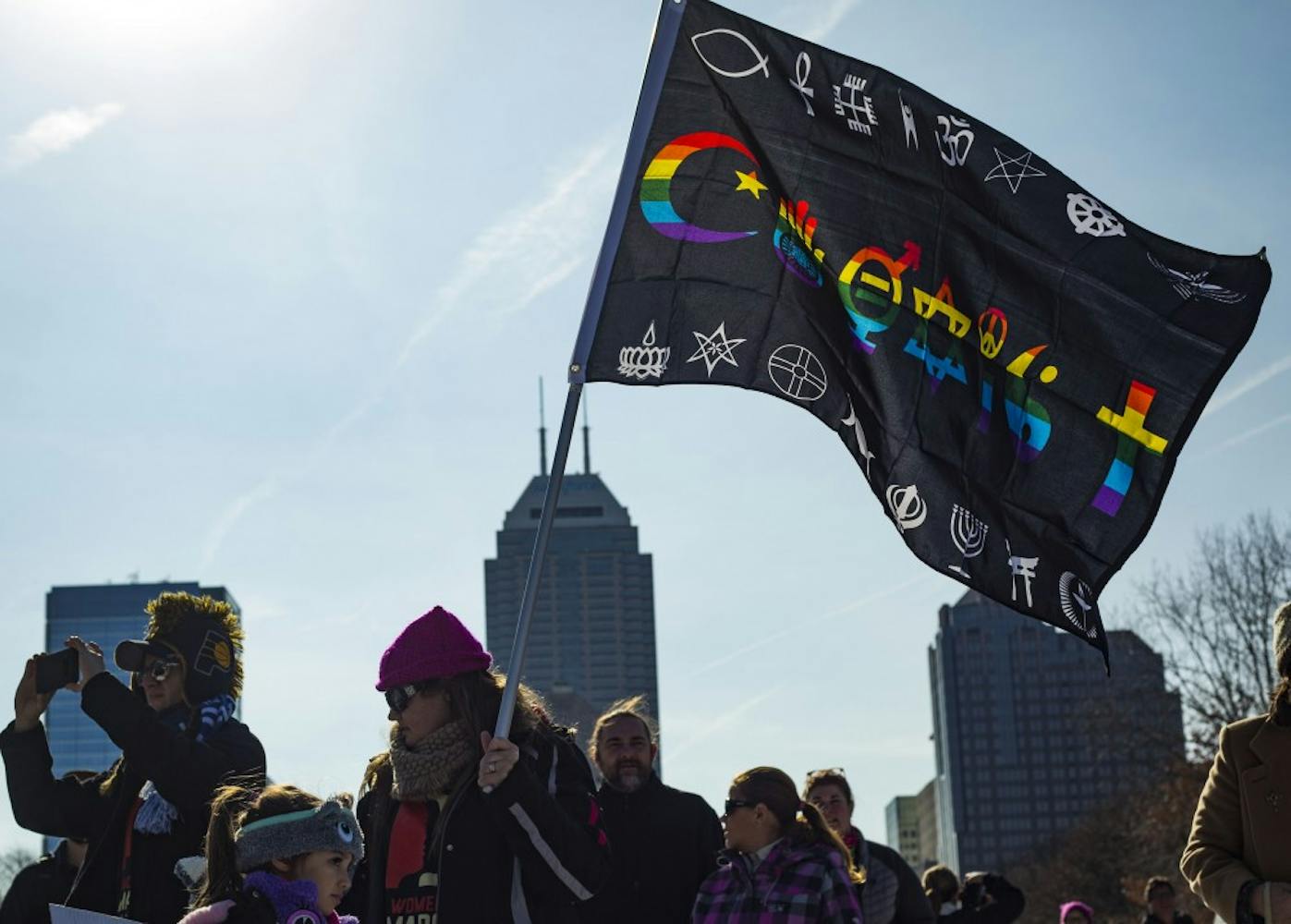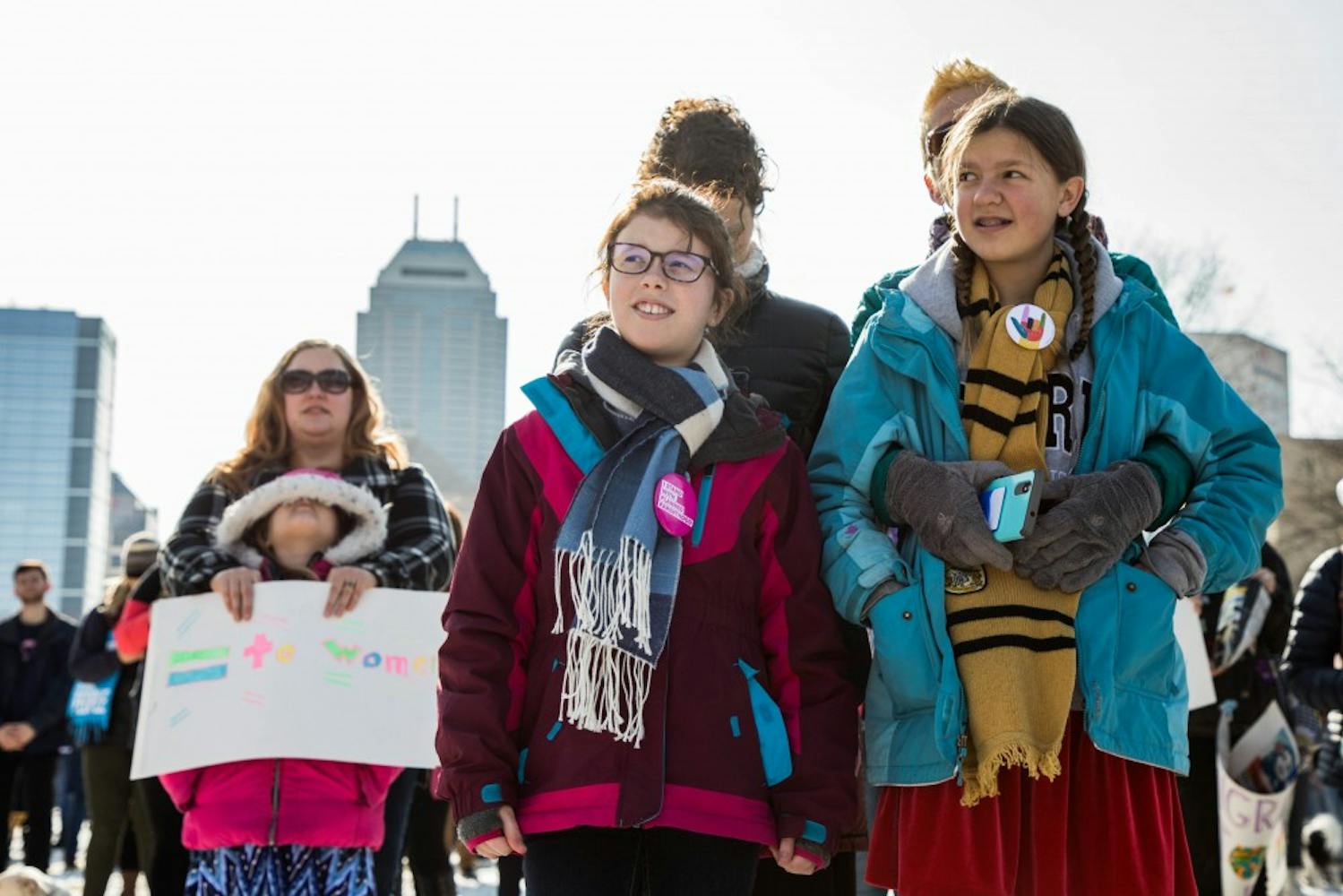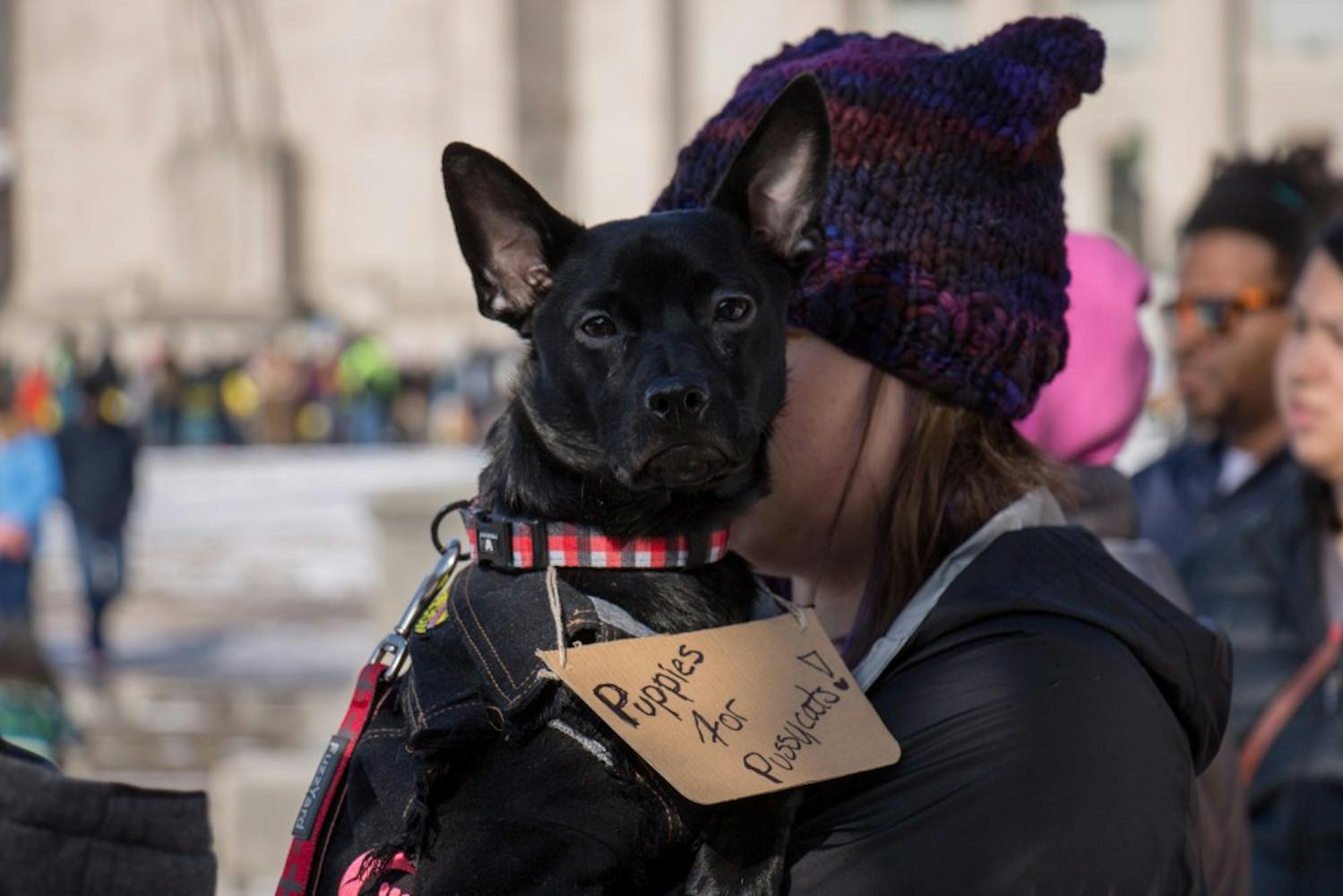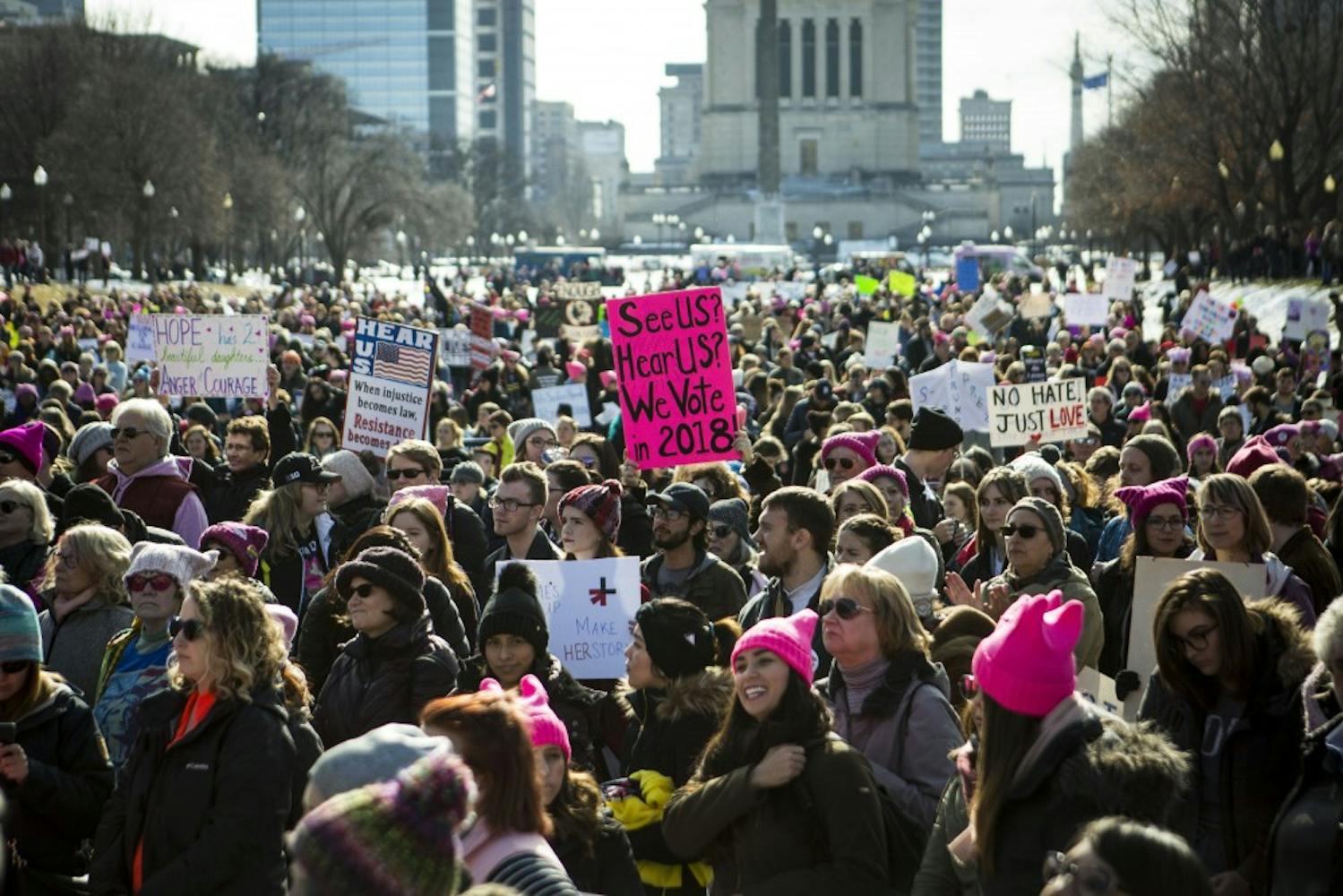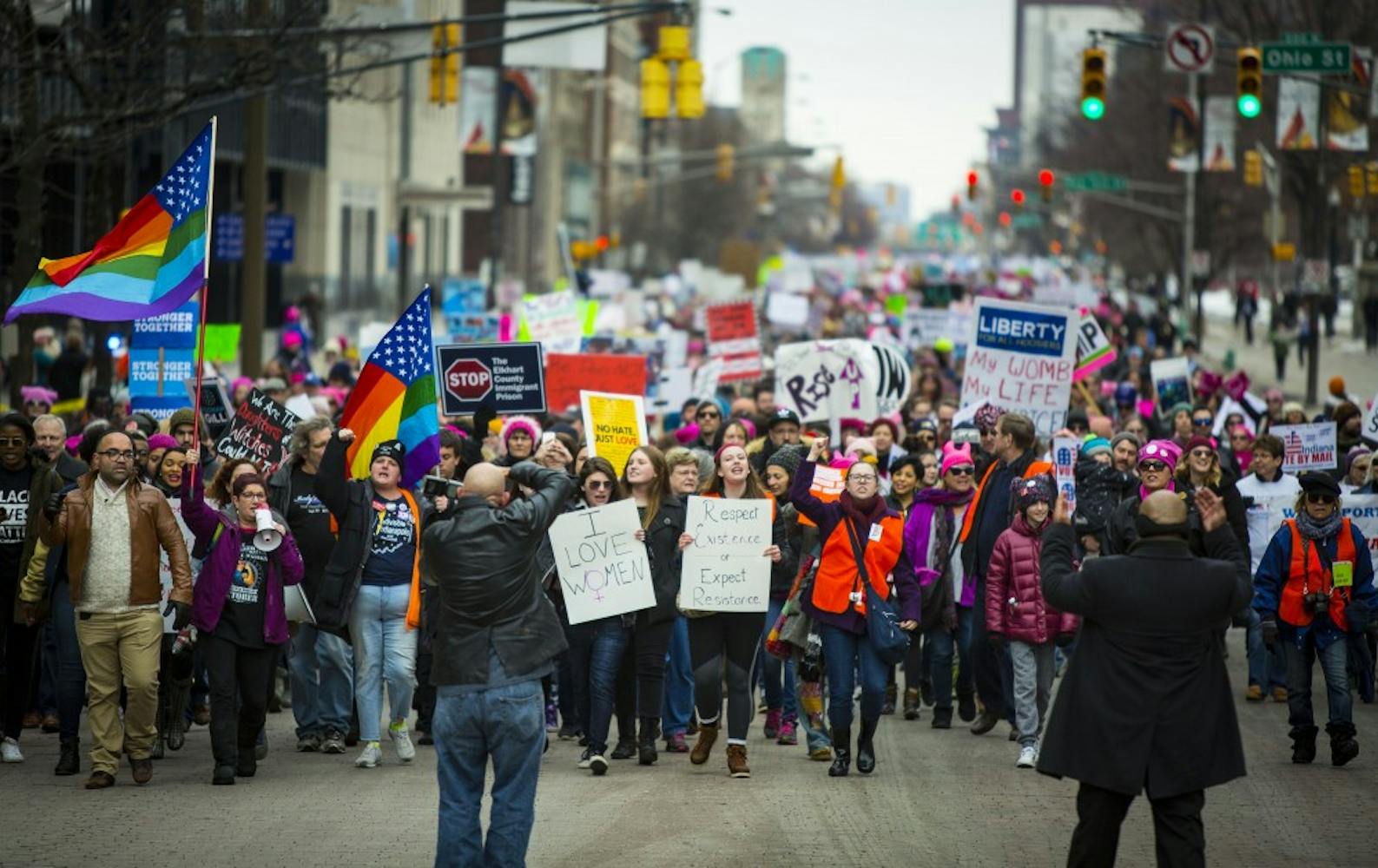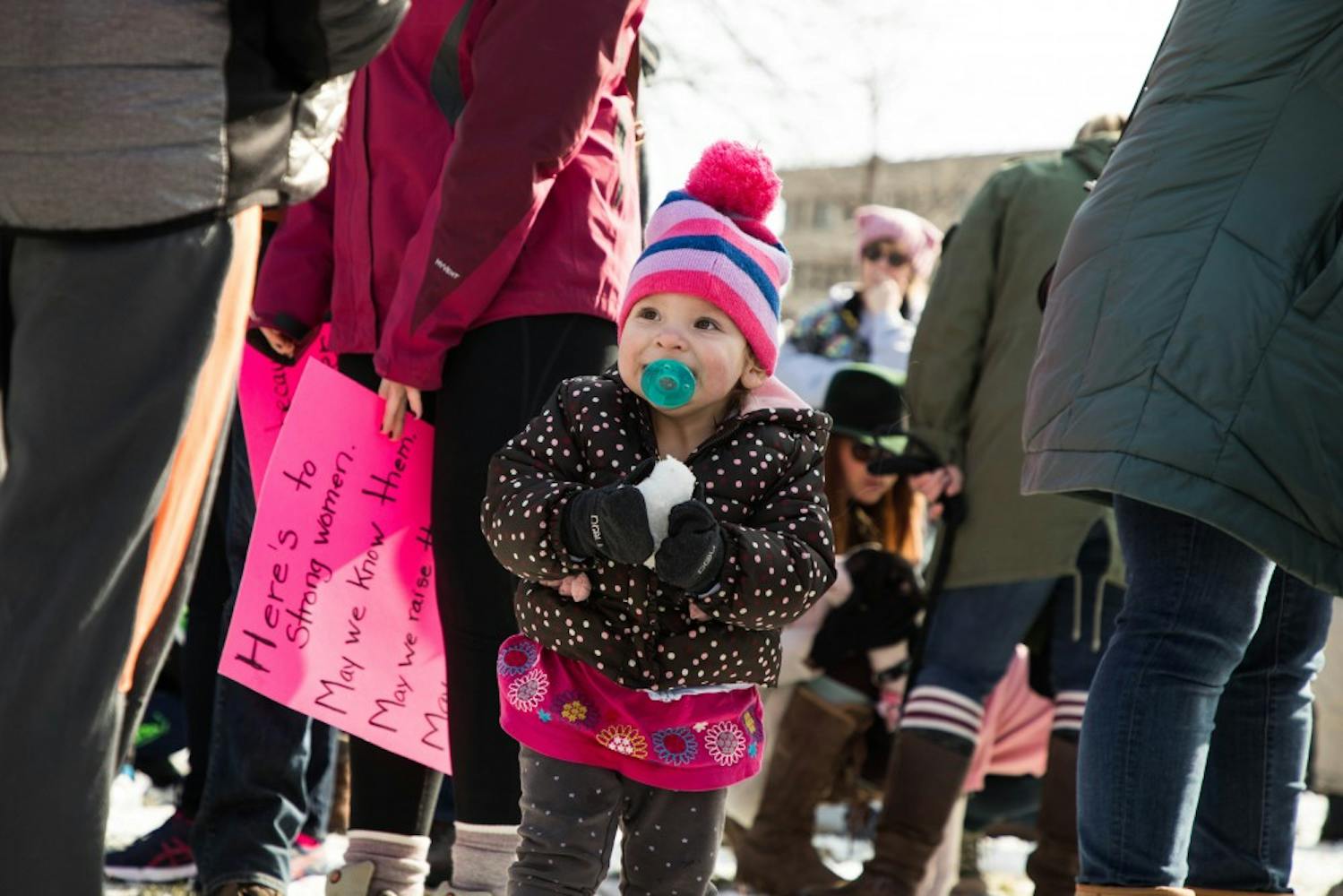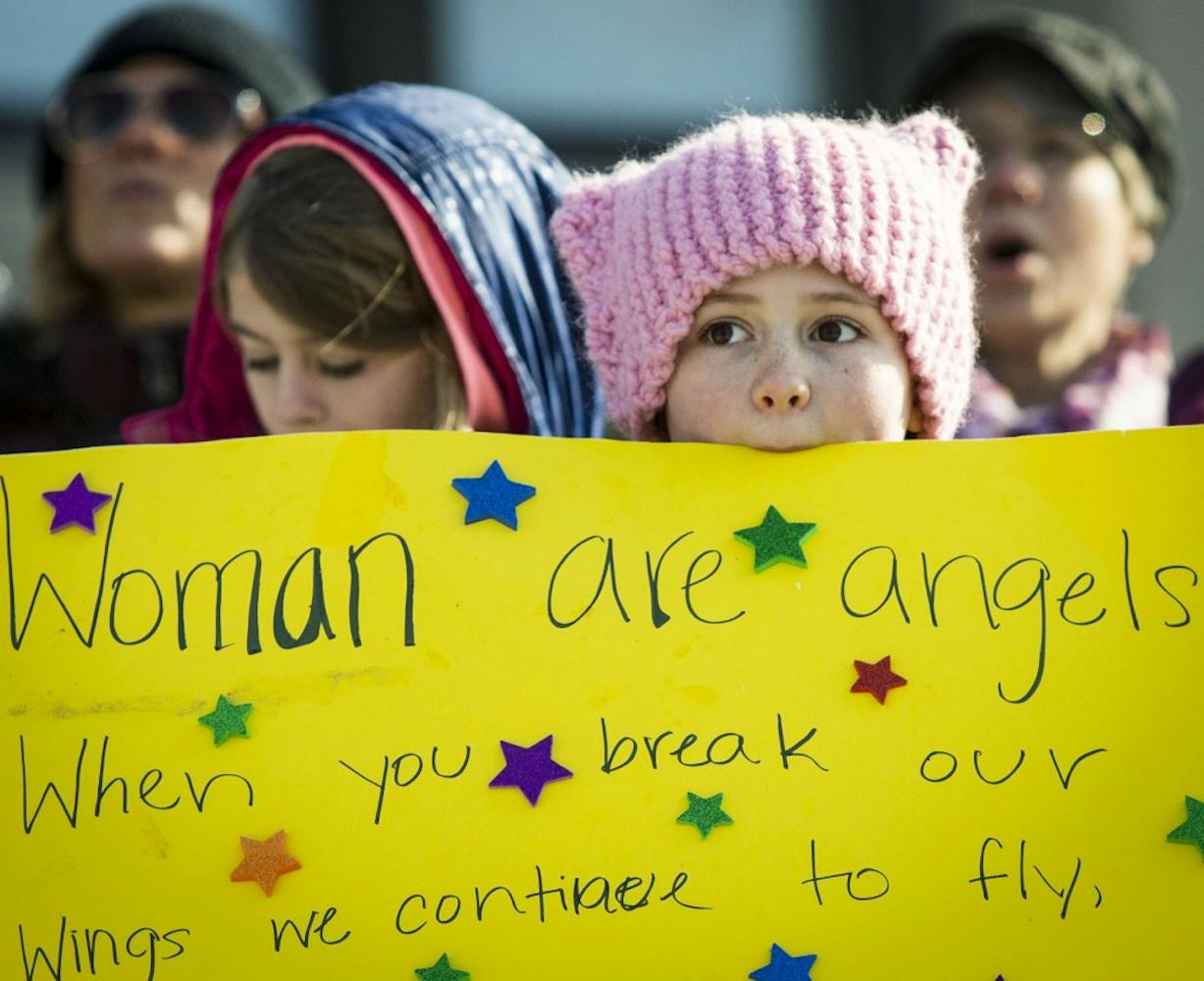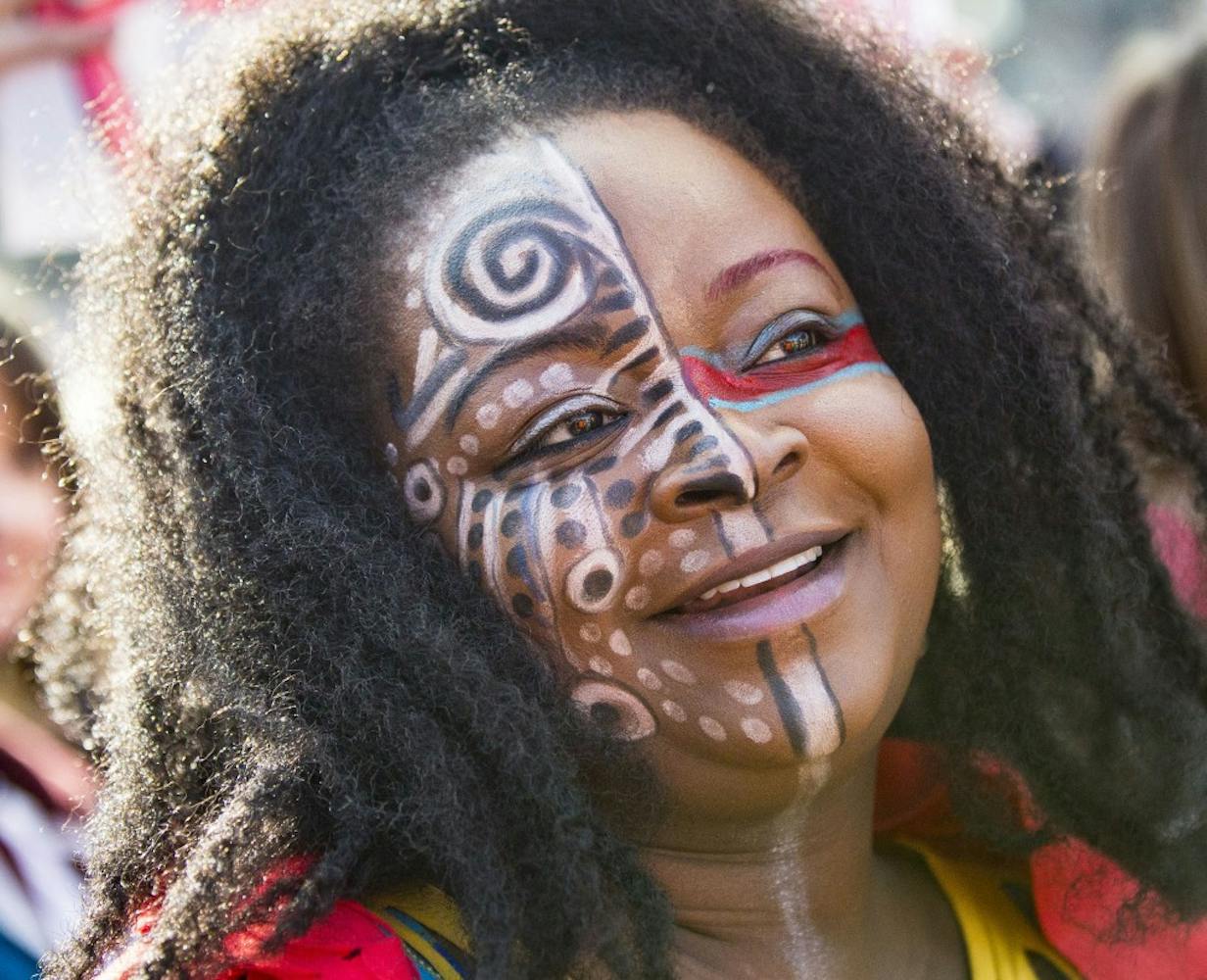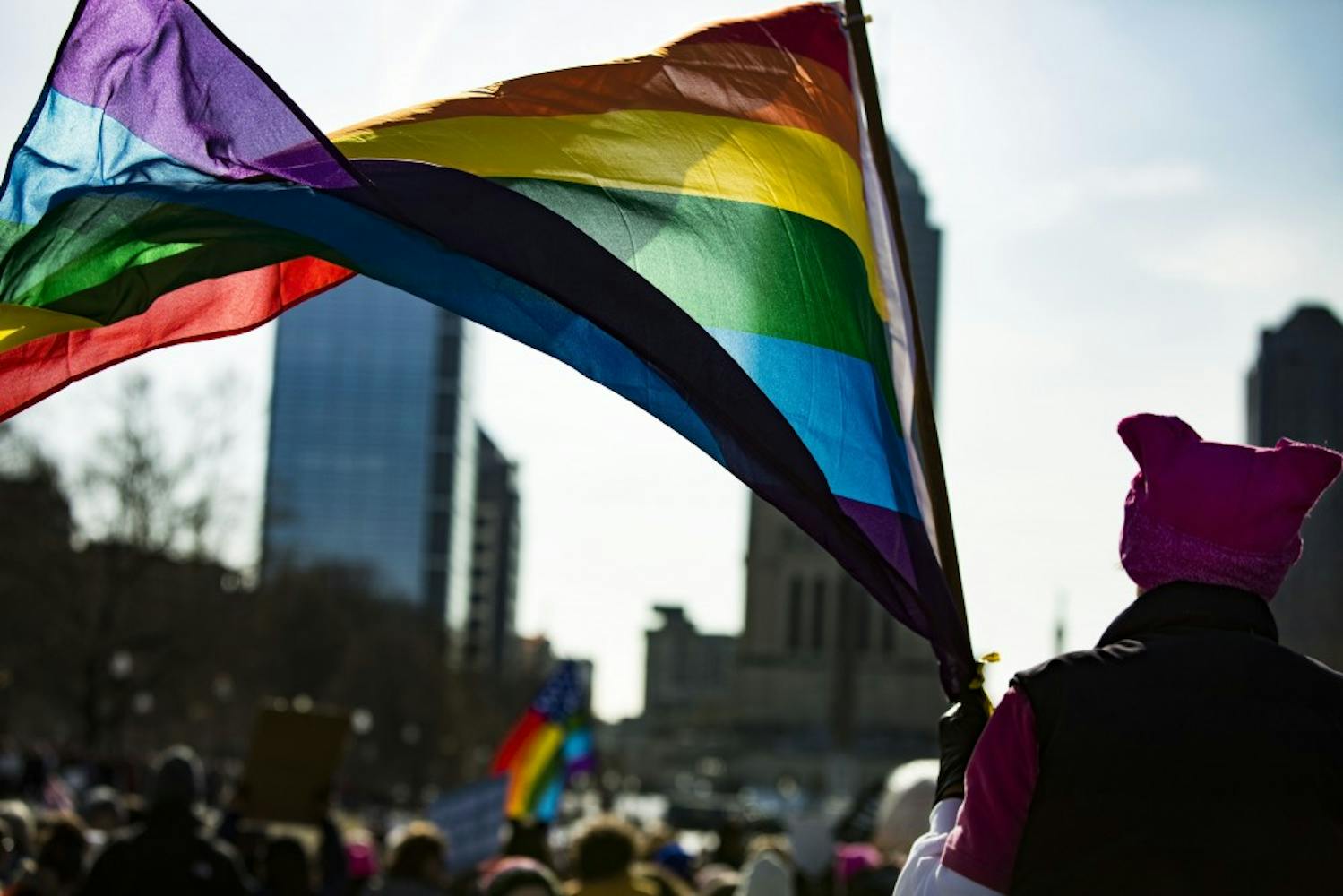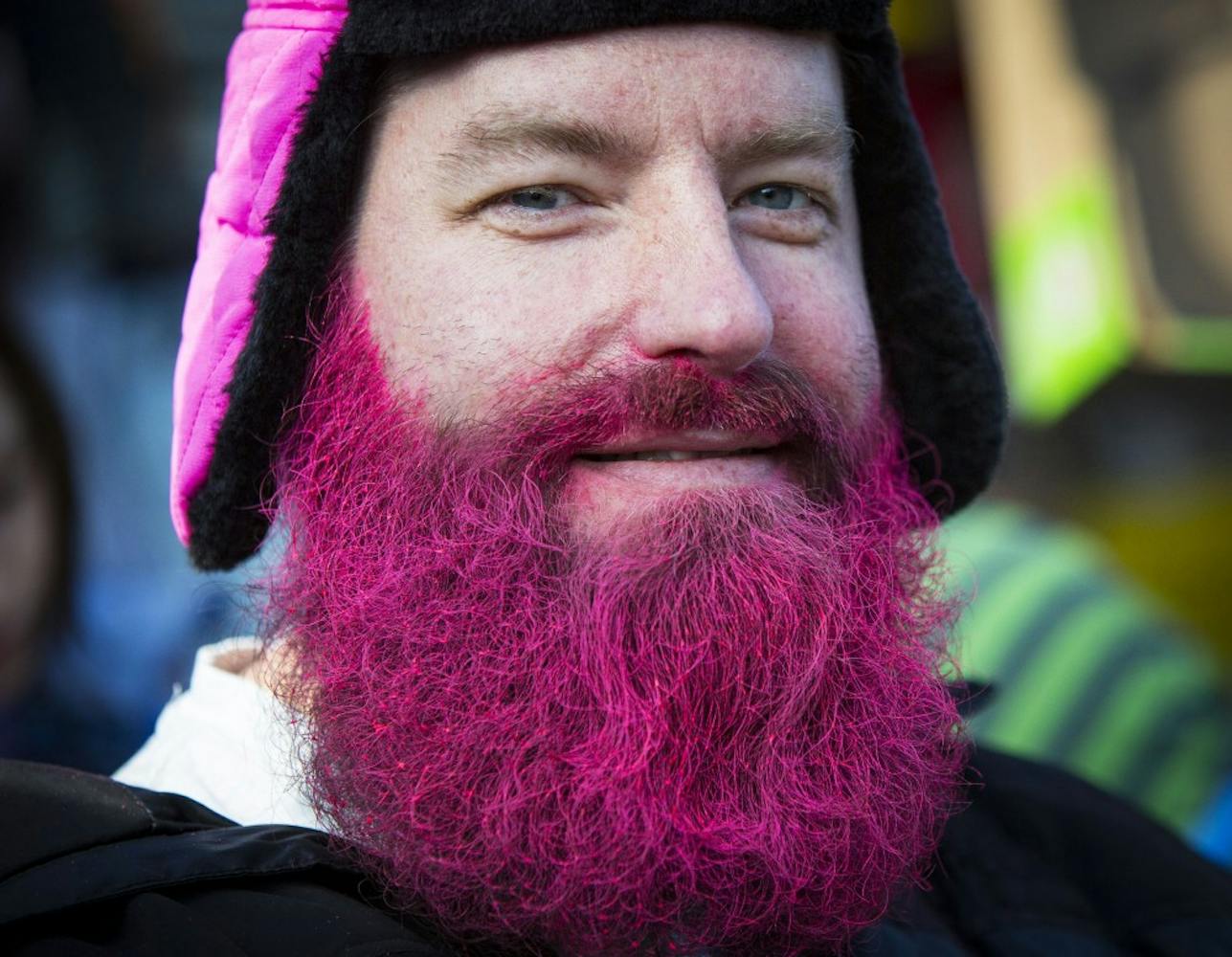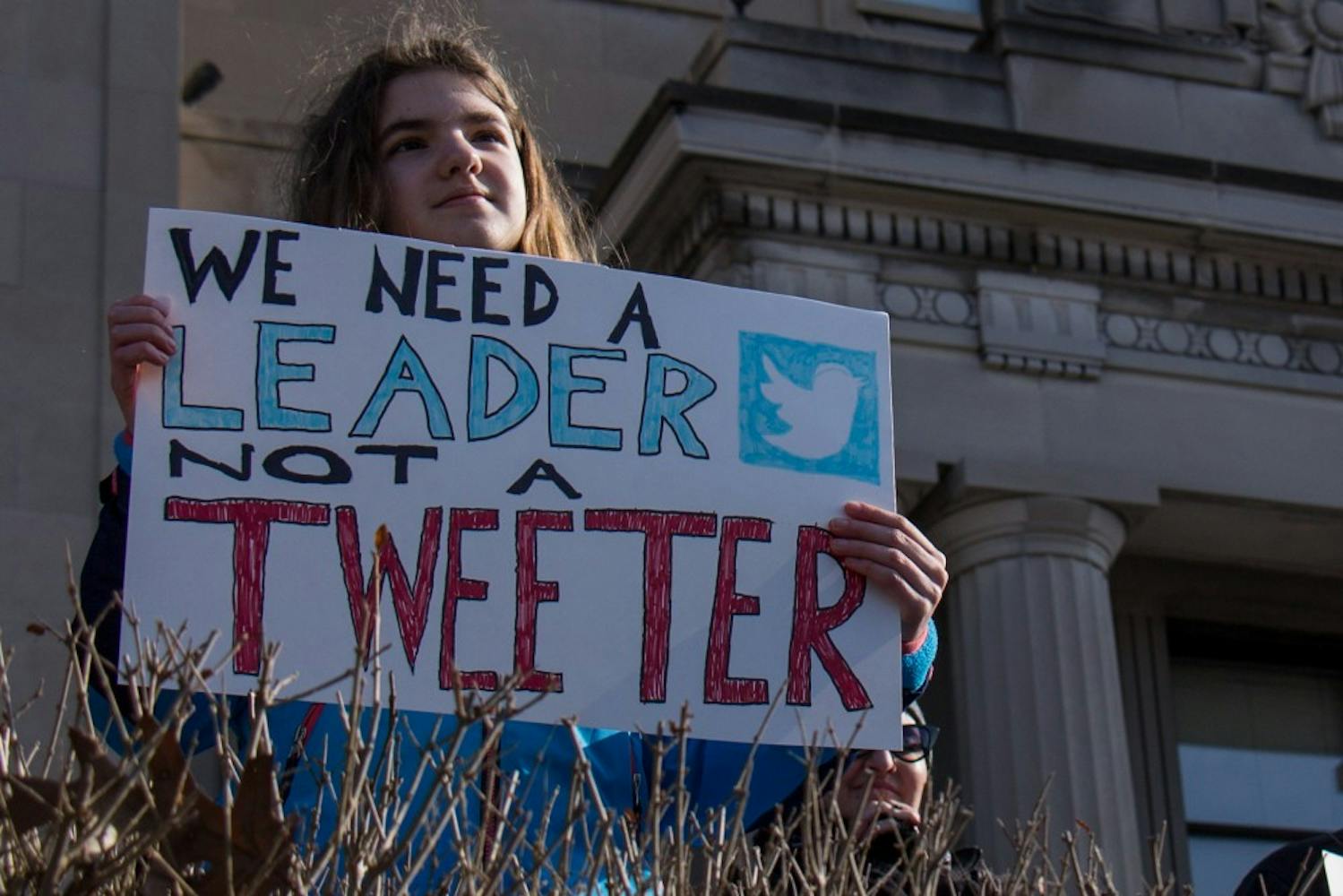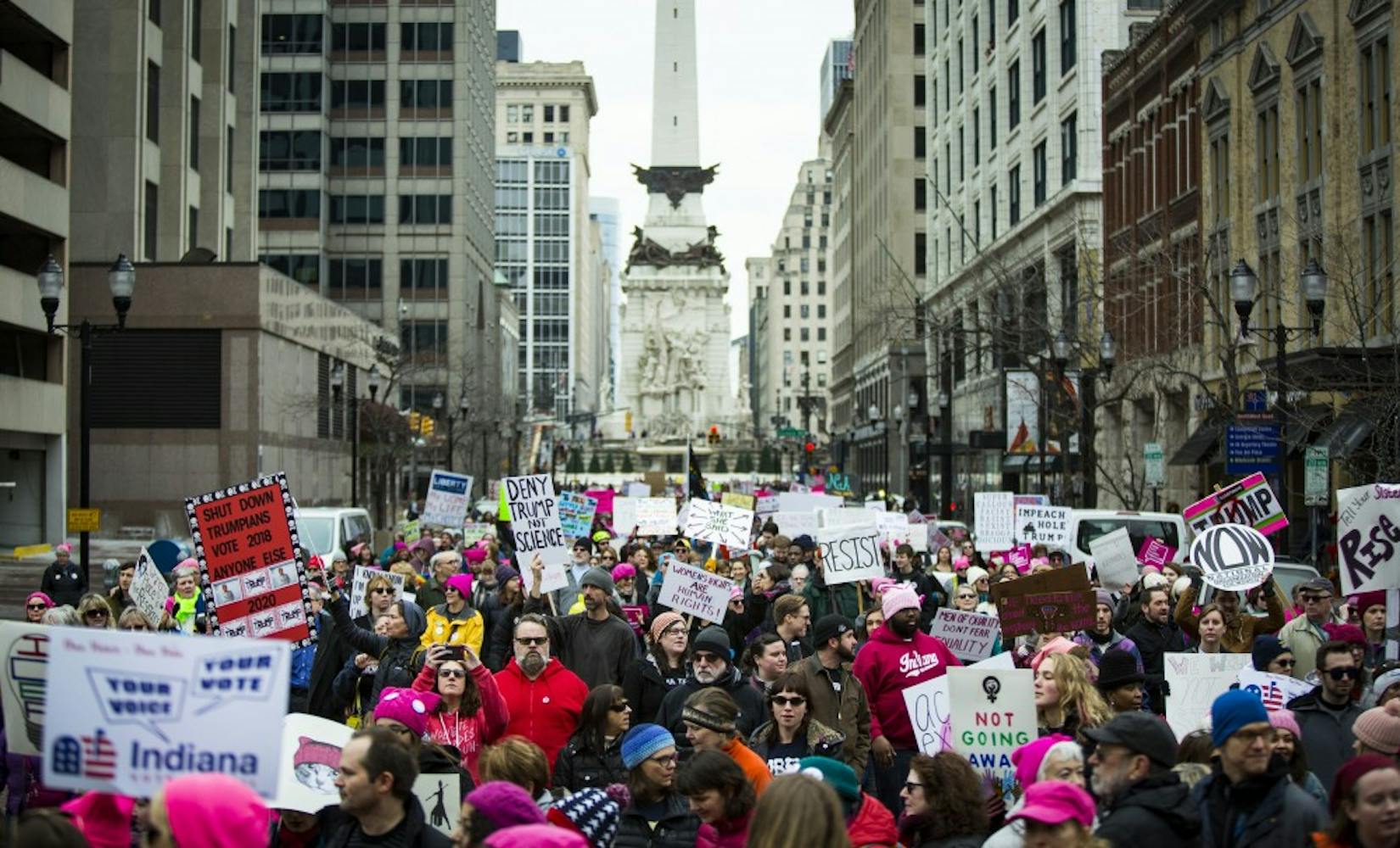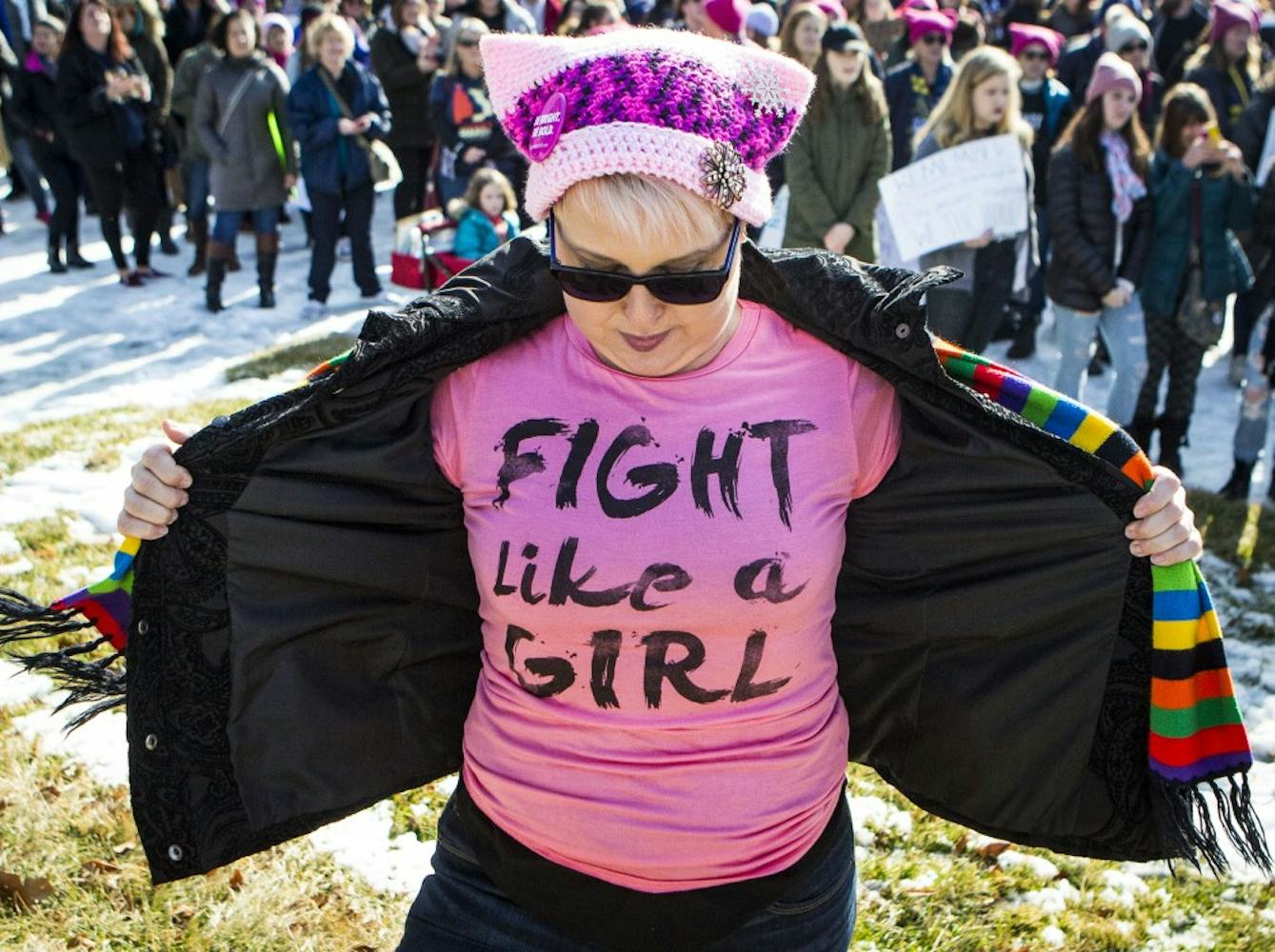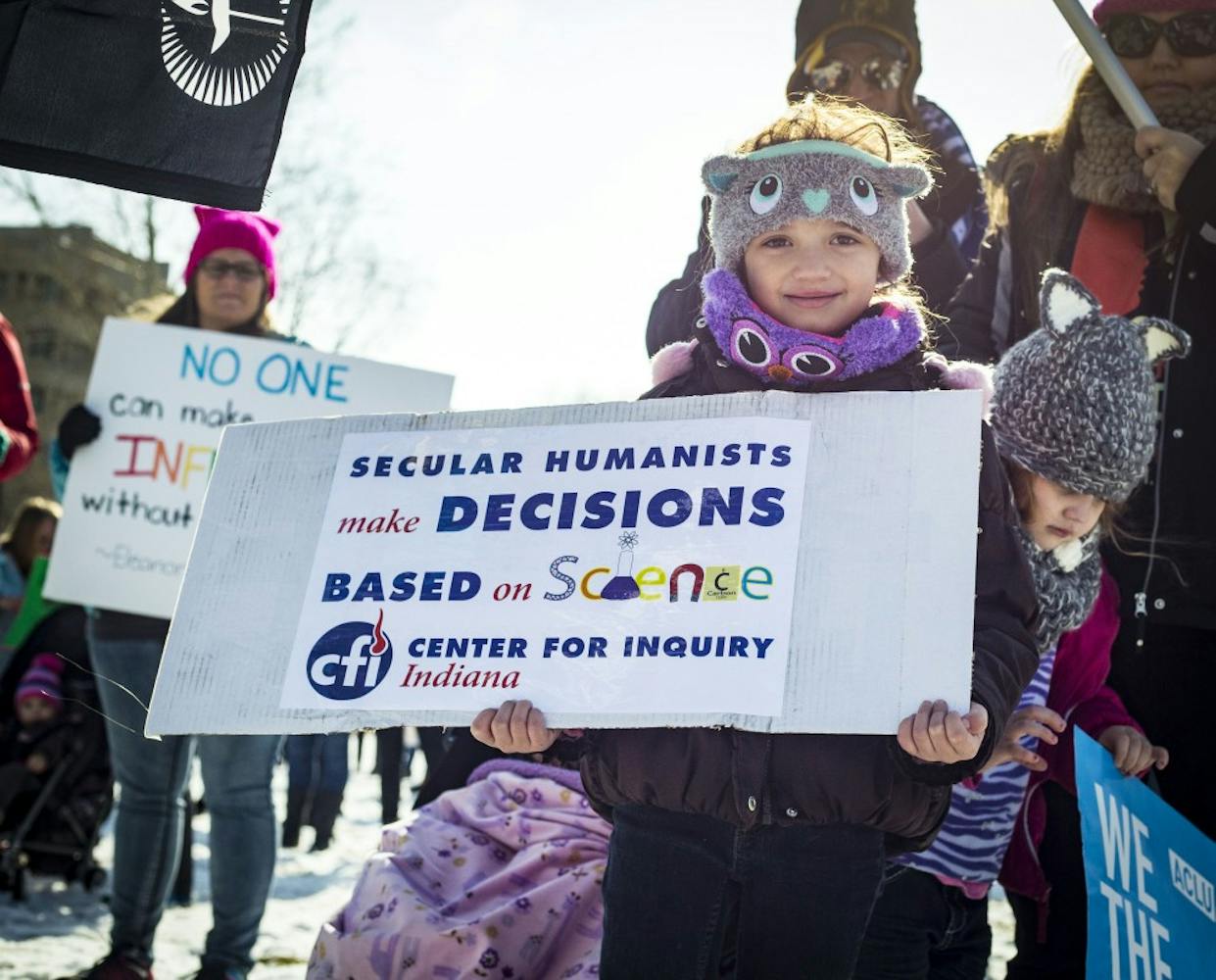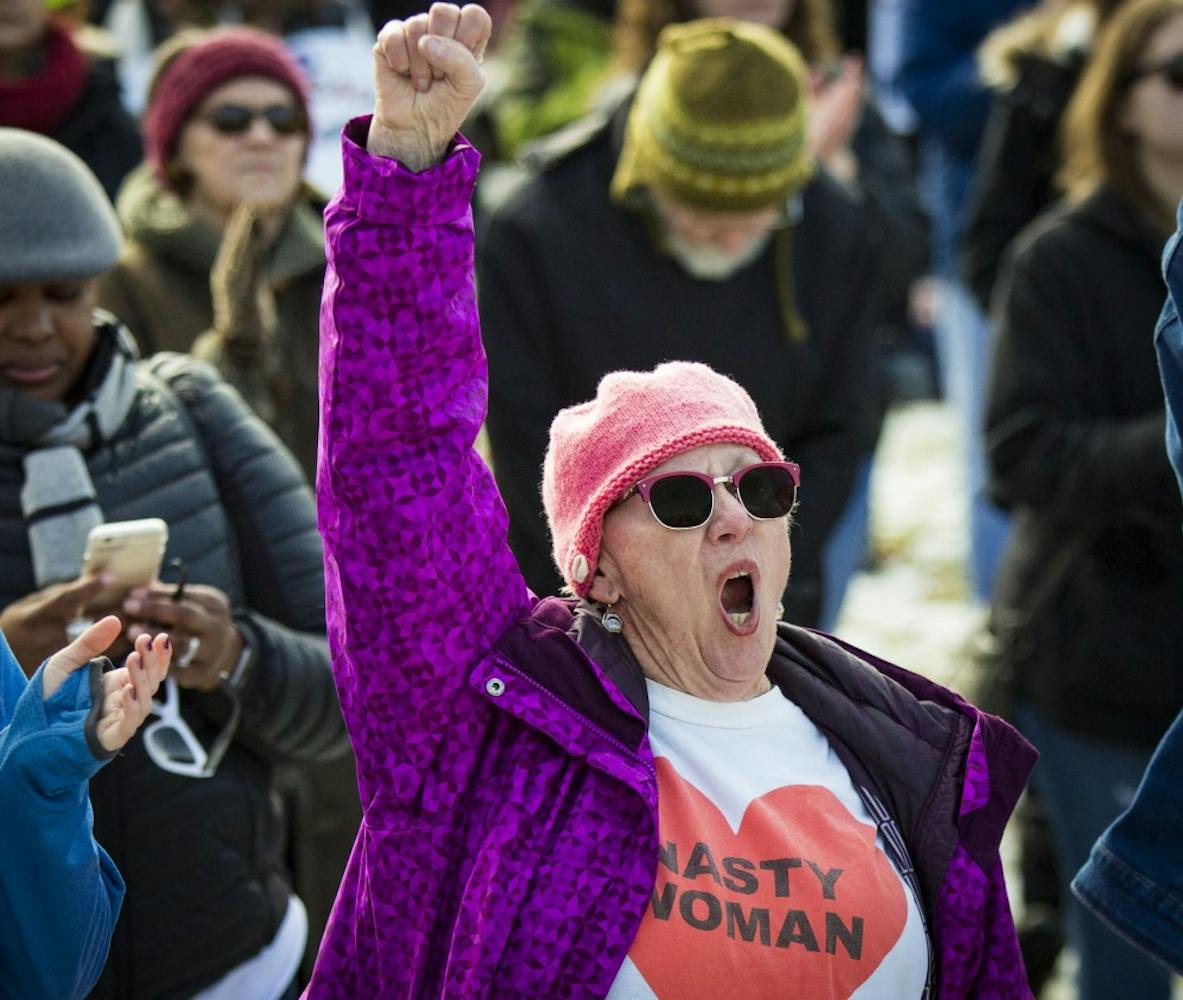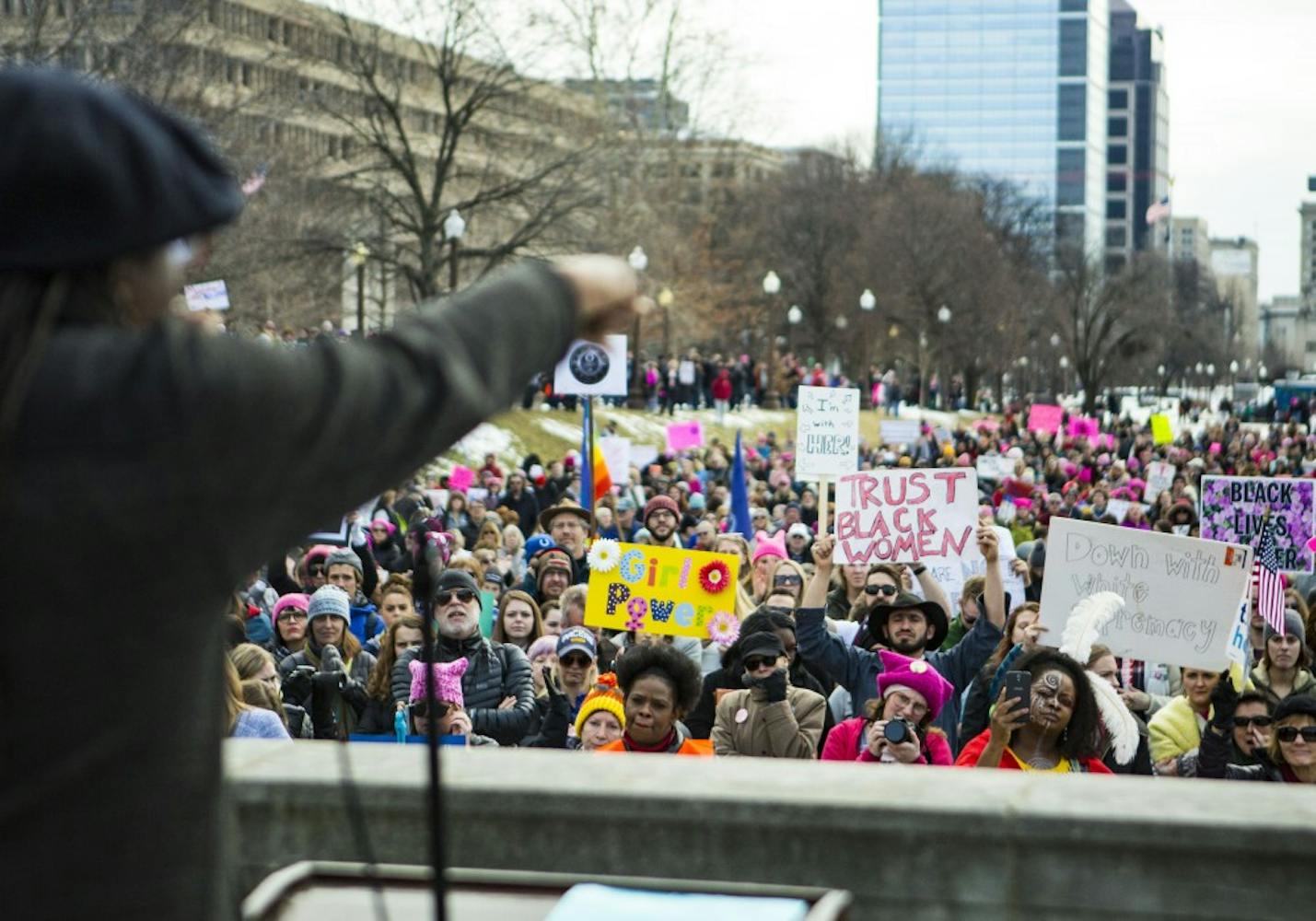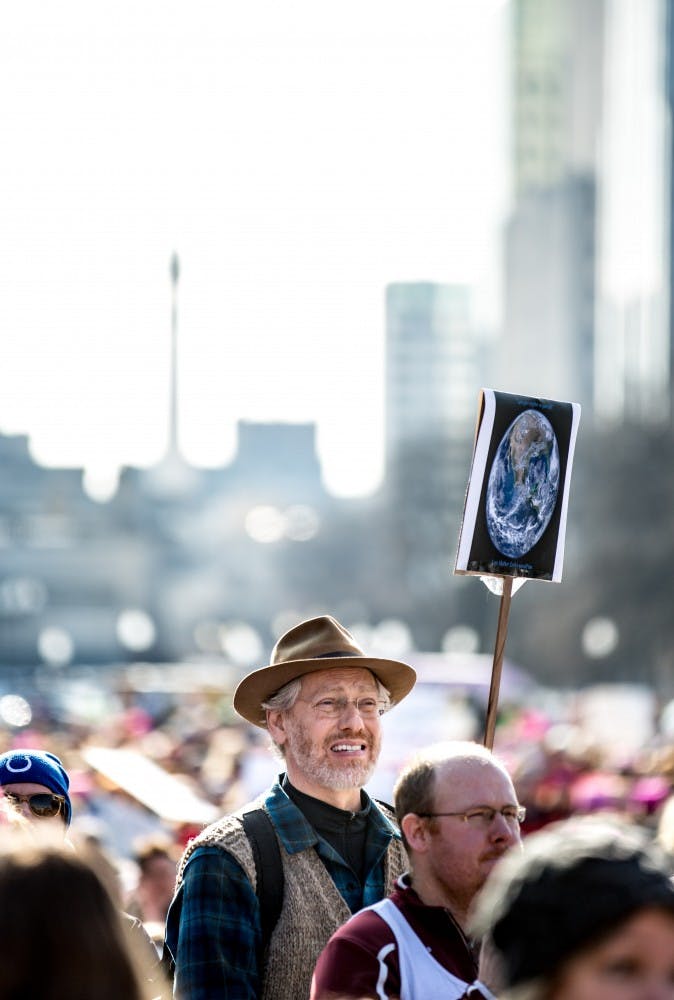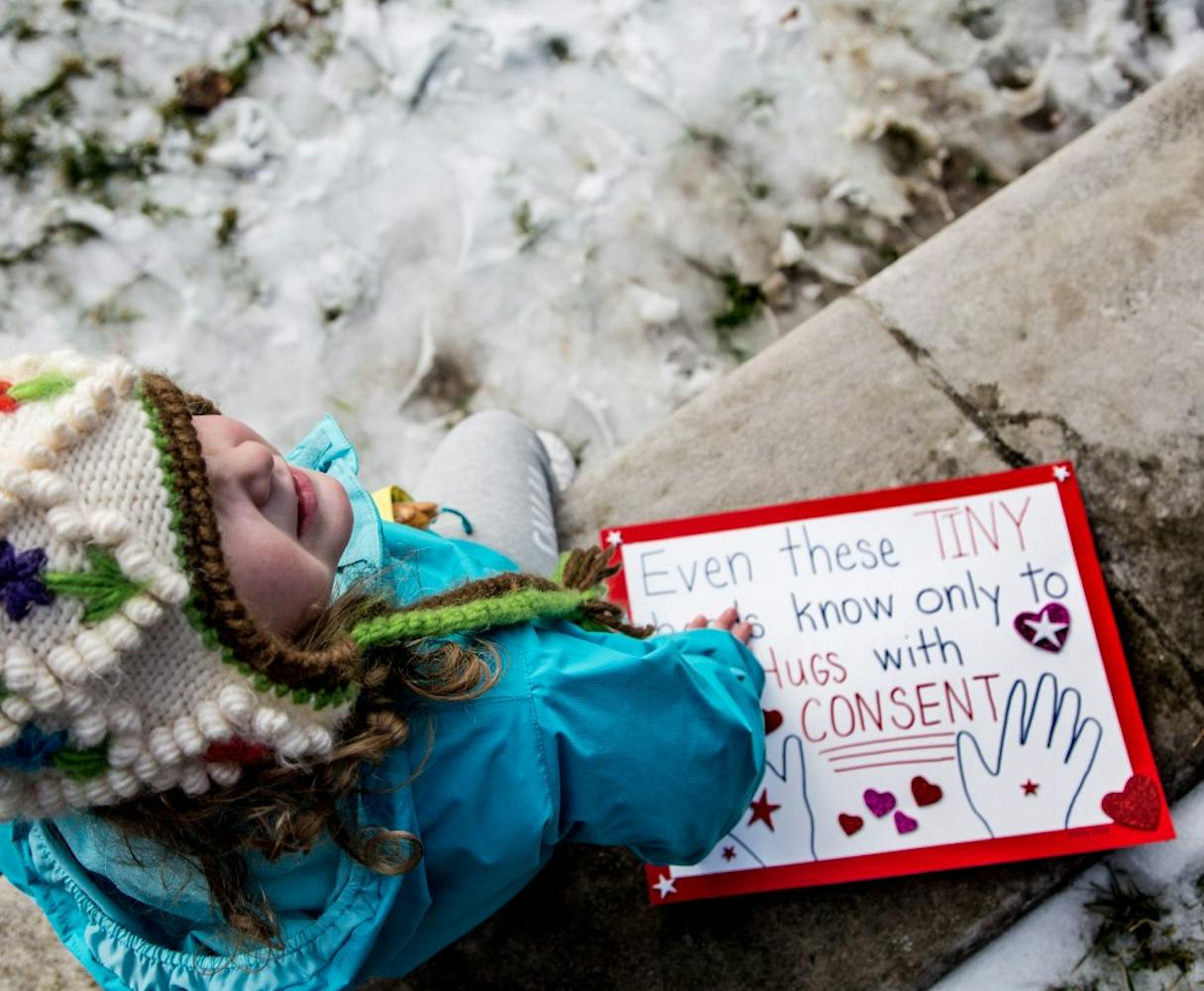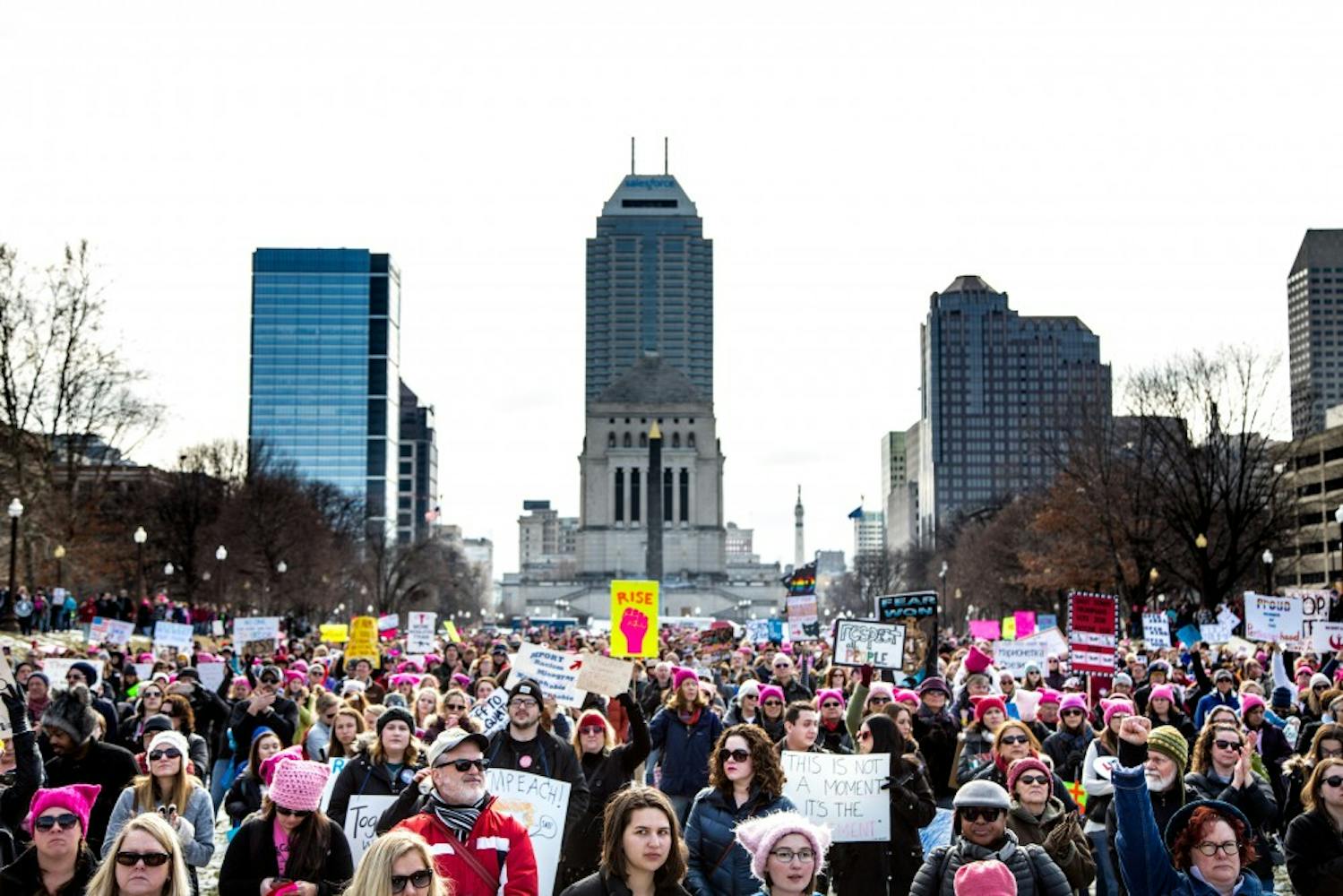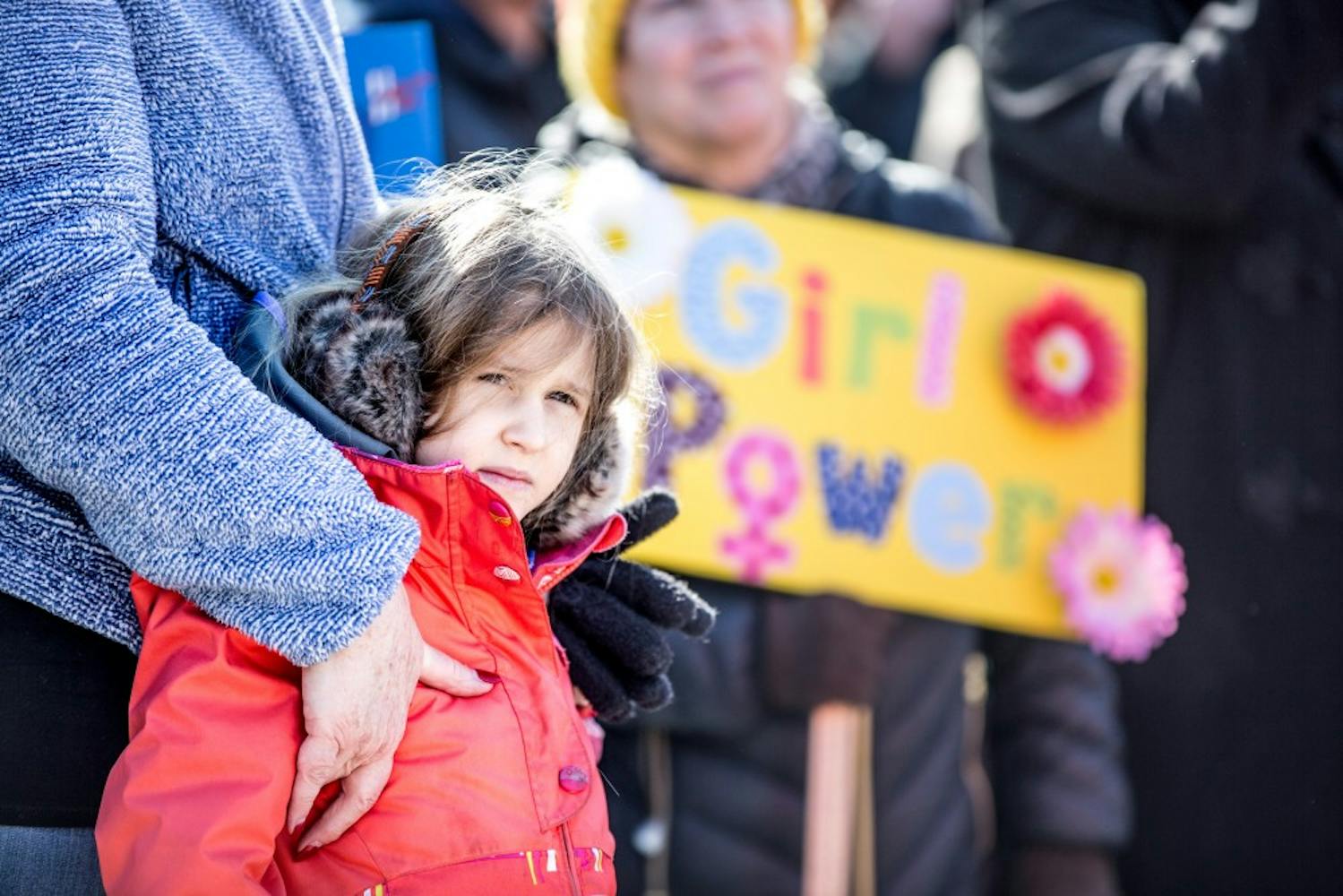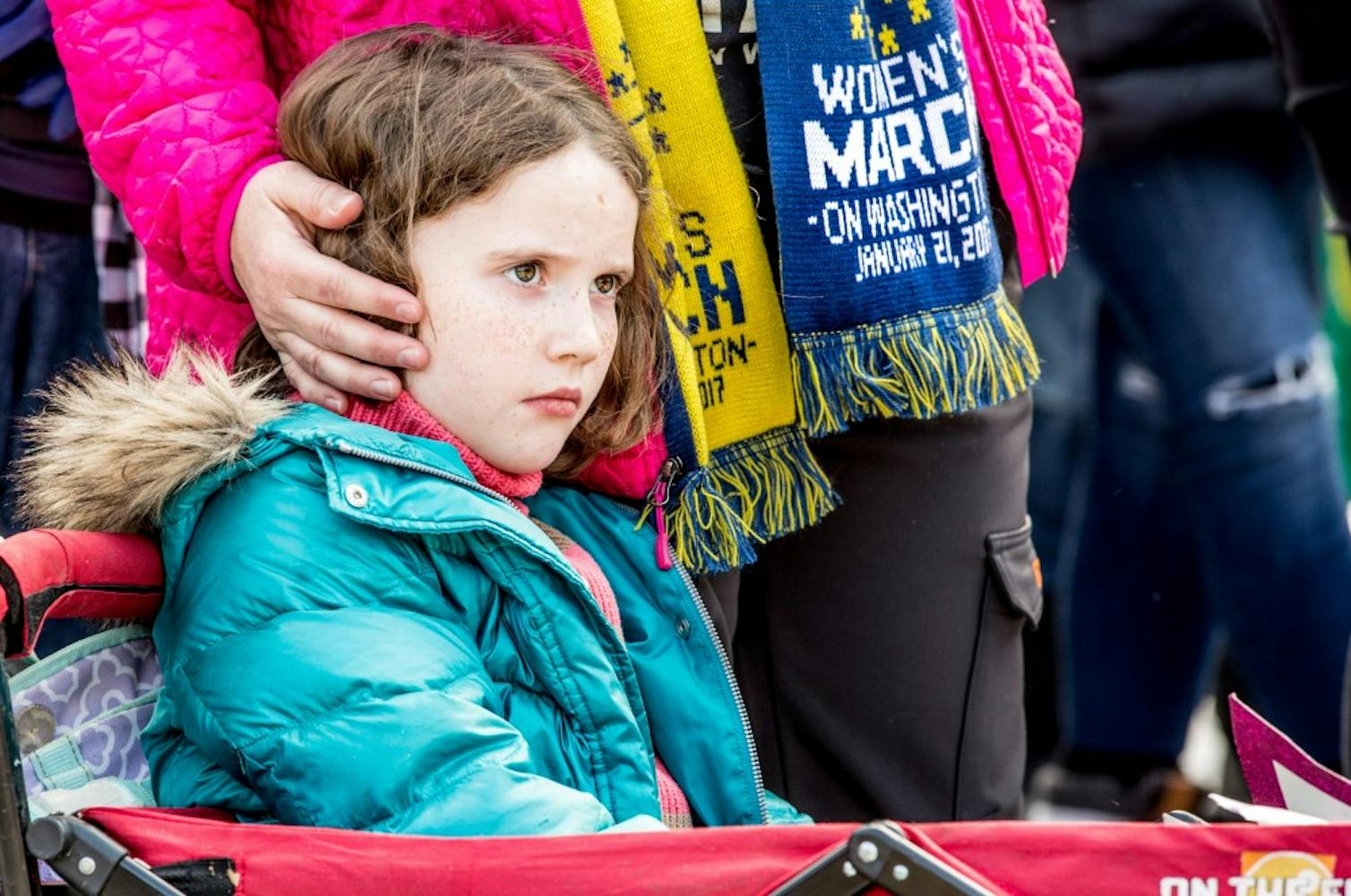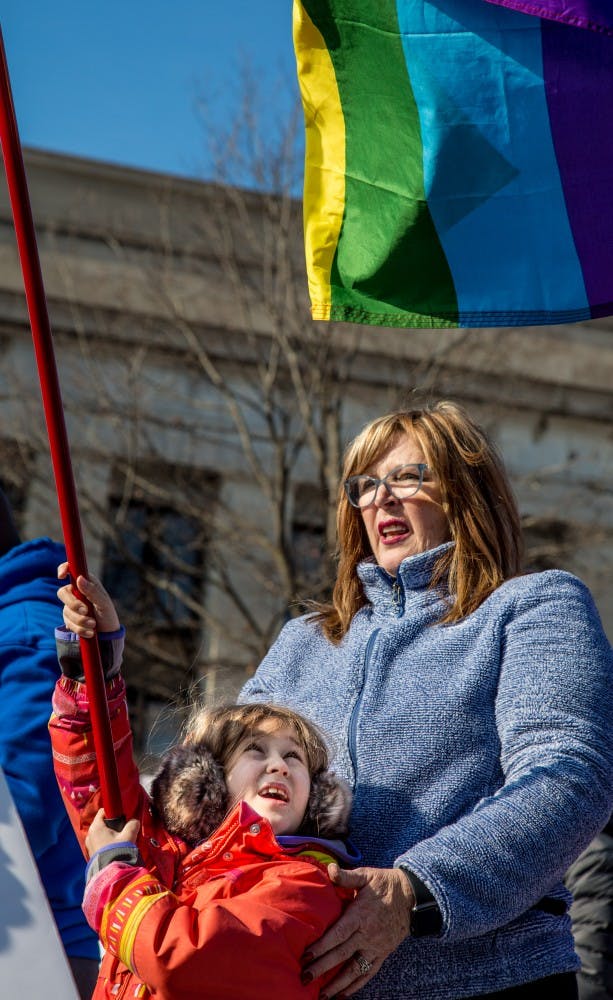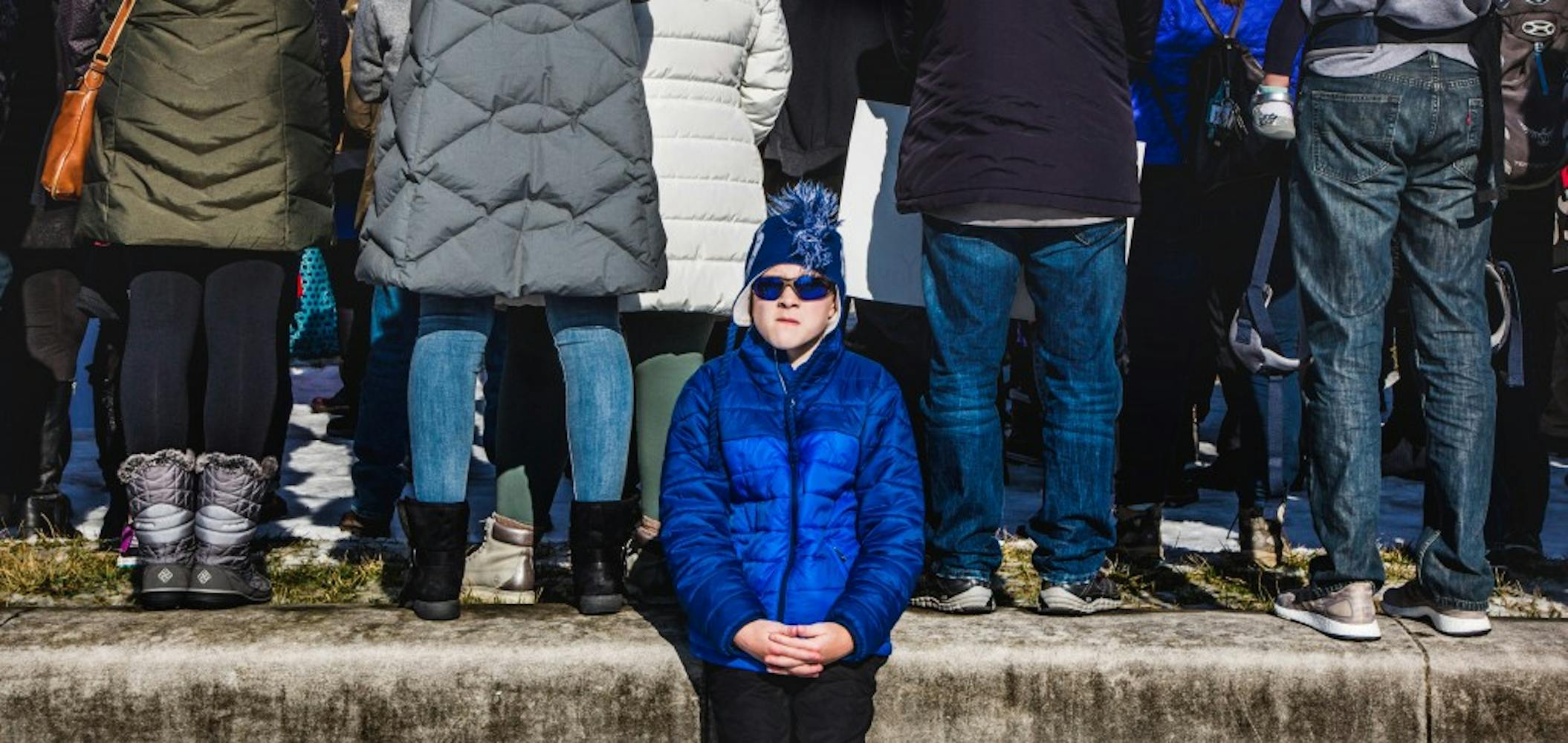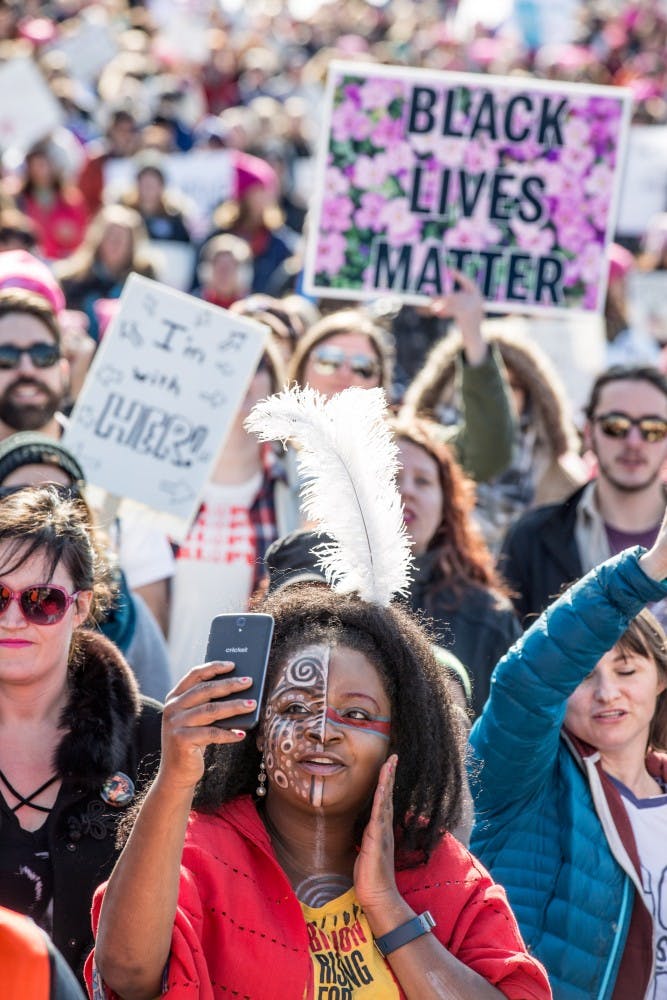In her senior year of high school, Emily Badger tried to create a feminist club, but administration denied her on the grounds that “the guys would feel left out.”
So when the freshman secondary English education major found out she had a chance to go to her first demonstration with other friends from Ball State, she said she felt a responsibilty to attend.
“I think [the Women’s March] is a way to show [that] people aren’t going to stop until they get what they need,” Badger said.
The Women’s March reconvened for the second year Saturday, with the Indianapolis march joining more than 200 planned worldwide to call for women’s rights.
Marchers gathered at the American Legion Mall to begin rallying and listening to speakers. Then, around 2 p.m., the crowd marched south to Monument Circle and headed to the Indiana Statehouse.
Prominent figures spoke at different marches nationwide, including Natalie Portman in
Los Angeles, who described her own experience which made her a part of the #MeToo movement, and Halsey, who recited a poem in New York about sexual assault.
Organizations present in Indianapolis included Indy10, Spencer Pride and Planned Parenthood. Various speakers conveyed a similar message: voter participation in elections is not optional.
Indiana Metropolitan Police blocked roads to allow the marchers, their children and pets to pass through downtown streets. On Facebook, over 1,000 people said they went to the event.
After finding out about the event on social media, senior marketing major Emily Neuhauser said she couldn’t pass up her opportunity to attend.
“As soon as I saw the Facebook invite circulating, I was like, ‘I’m so there,’” Neuhauser said.
To Neuhauser, rallies and demonstrations like the Women’s March not only support a cause, but create a synergy between like-minded individuals.
“You can talk about it by yourself all that you want, but when you get a group of people together, it kind of has momentum behind it,” Neuhauser said. “I think that is easier to make an impact and show that we all feel really strongly about this.”
Robert Coleman, a junior computer information systems major, also said he felt a sense of community while rallying, something he said he didn’t expect to feel.
“It’s a lot more family-friendly and communicative than I thought it was going to be, and I think it’s awesome,” Coleman said.
And Coleman found no problem with calling himself a feminist.
“It means standing up for disenfranchised women, women being able to do everything that men can and everyone having the same, level playing field,” Coleman said.
Some in attendance said they recognized that political action doesn’t end on the day of the march. Badger said just one voice can create a chain reaction.
“When it’s a bunch of like-minded people gathered in one place, there’s this energy that you can feel something is going to happen, and if people are going to keep being loud and people are going to keep being angry and people are going to keep demanding for their rights, I think someone, somewhere is going to listen,” Badger said.
Contact Sara Barker with comments at slbarker3@bsu.edu or on Twitter at @sarabarker326.

